Shows
 Reality TherapyDr. Lee Jussim on Exposing Bogus ResearchIn this episode, psychologist Dr. Lee Jussim exposes bogus research, such as stereotype threat, the implicit bias test, and also shows the validity of stereotype accuracy.
2025-07-291h 20
Reality TherapyDr. Lee Jussim on Exposing Bogus ResearchIn this episode, psychologist Dr. Lee Jussim exposes bogus research, such as stereotype threat, the implicit bias test, and also shows the validity of stereotype accuracy.
2025-07-291h 20 The Andrew Klavan ShowWhy Stereotypes Are Surprisingly Accurate | Lee JussimLee Jussim, a social psychologist at Rutgers University, joins me for a fascinating discussion on the accuracy of stereotypes and the reality of left-wing authoritarianism. - - - Today’s Sponsor: Home Title Lock - Go to https://hometitlelock.com/klavan and use promo code KLAVAN to get a FREE title history report so you can find out if you’re already a victim AND 14 days of protection for FREE! And make sure to check out the Million Dollar TripleLock protection details when you get the...2025-06-1830 min
The Andrew Klavan ShowWhy Stereotypes Are Surprisingly Accurate | Lee JussimLee Jussim, a social psychologist at Rutgers University, joins me for a fascinating discussion on the accuracy of stereotypes and the reality of left-wing authoritarianism. - - - Today’s Sponsor: Home Title Lock - Go to https://hometitlelock.com/klavan and use promo code KLAVAN to get a FREE title history report so you can find out if you’re already a victim AND 14 days of protection for FREE! And make sure to check out the Million Dollar TripleLock protection details when you get the...2025-06-1830 min Rafał Szrajnert - Biznes, Marketing, SprzedażSamospełniające się przewidywania, samospełniająca się przepowiednia, samospełniające się proroctwo, efekt placeboJak nasze myśli i przekonania kształtują rzeczywistość? W tym fascynującym odcinku zagłębiamy się w potężne zjawisko samospełniających się przepowiedni i efektu placebo - fenomenów, które pokazują niezwykłą moc ludzkiego umysłu!📩 Chcesz Ze Mną Pracować? Wypełnij ► https://uniqueseo.pl/oferta/🏆 Kurs o Reklamie► https://szkolenie.rafalszrajnert.pl/jak-zrobic-dobra-reklame/🔥 Mój blog► https://www.rafalszrajnert.pl/🔔 SUBSKRYBUJ: Jeżeli film Ci się podoba - daj kciuk w górę. 👍Czy zastanawiałeś się kiedyś, dlaczego niektórzy ludzie zawsze przyciągają to, czego się spodziewają? D...2025-04-1415 min
Rafał Szrajnert - Biznes, Marketing, SprzedażSamospełniające się przewidywania, samospełniająca się przepowiednia, samospełniające się proroctwo, efekt placeboJak nasze myśli i przekonania kształtują rzeczywistość? W tym fascynującym odcinku zagłębiamy się w potężne zjawisko samospełniających się przepowiedni i efektu placebo - fenomenów, które pokazują niezwykłą moc ludzkiego umysłu!📩 Chcesz Ze Mną Pracować? Wypełnij ► https://uniqueseo.pl/oferta/🏆 Kurs o Reklamie► https://szkolenie.rafalszrajnert.pl/jak-zrobic-dobra-reklame/🔥 Mój blog► https://www.rafalszrajnert.pl/🔔 SUBSKRYBUJ: Jeżeli film Ci się podoba - daj kciuk w górę. 👍Czy zastanawiałeś się kiedyś, dlaczego niektórzy ludzie zawsze przyciągają to, czego się spodziewają? D...2025-04-1415 min Bewusstsein & Common Sense mit Nina und Sandra98: JBP Episode 507 (GERMAN): The Insanity of Woke PsychologistsDiese Woche habe wir uns mit Episode 507 befasst. Es geht um Lee Jussim, der als einer der wenigen sozialen Psychologen wirklich Wissenschaft betreibt und sich z. B. mit den gewalttätigen Protesten während C.. befasst hat. Viel Spaß :)2025-03-2026 min
Bewusstsein & Common Sense mit Nina und Sandra98: JBP Episode 507 (GERMAN): The Insanity of Woke PsychologistsDiese Woche habe wir uns mit Episode 507 befasst. Es geht um Lee Jussim, der als einer der wenigen sozialen Psychologen wirklich Wissenschaft betreibt und sich z. B. mit den gewalttätigen Protesten während C.. befasst hat. Viel Spaß :)2025-03-2026 min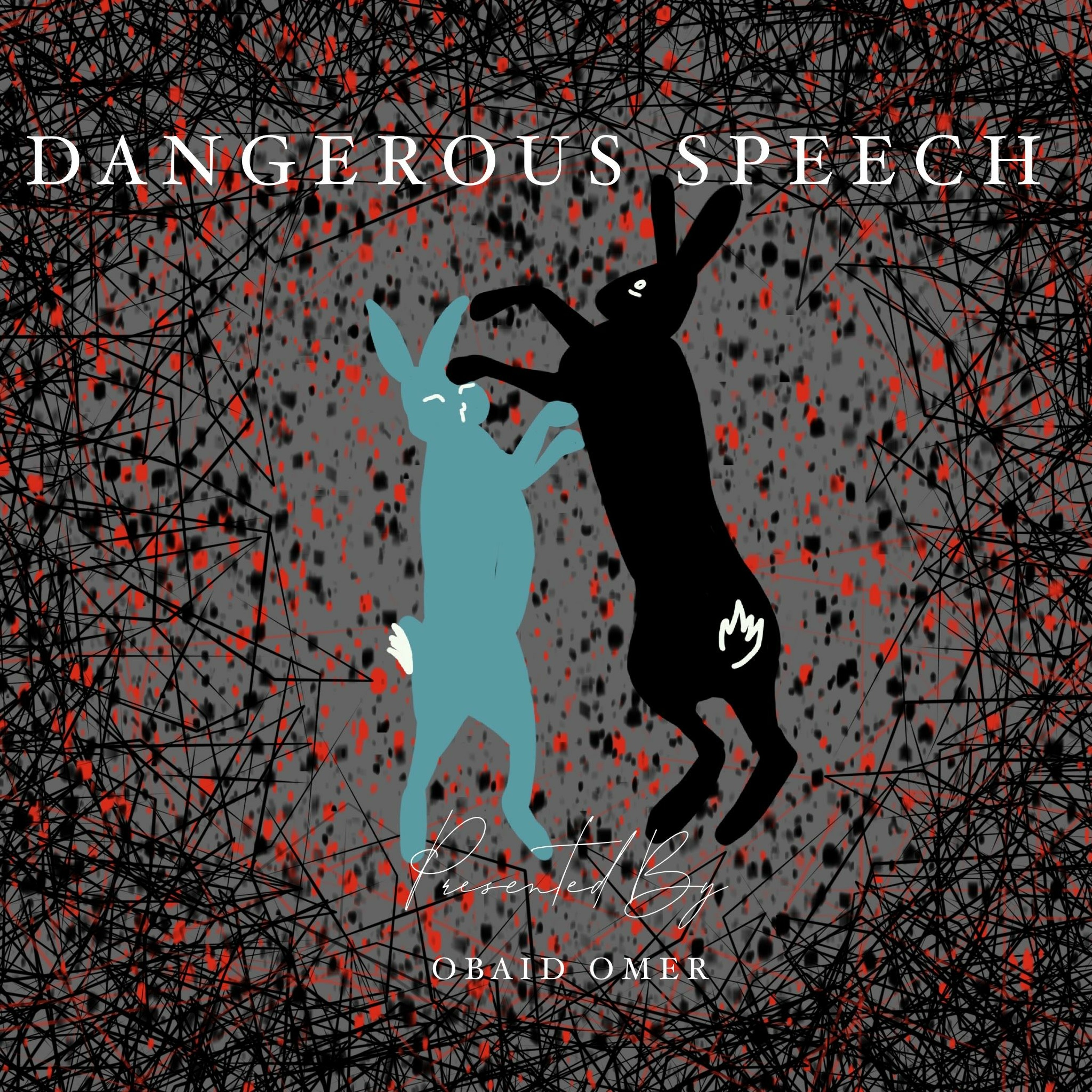 Dangerous SpeechEp 173 Lee JussimI spoke with Lee Jussim about a recent study he worked on that looked at DEI trainings. We also talked about the state of psychology and academia.
Follow me: @Dangerousspeach
Follow Lee: @PsychRabble
You can read the study on DEI training here: https://networkcontagion.us/wp-content/uploads/Instructing-Animosity_11.13.24.pdf
Subscribe to Lee’s Substack here: https://unsafescience.substack.com/
The videos about the conference on censorship in the sciences can be found here: https://dornsife.usc.edu/cesr/censorship-in-the-sciences-interdisciplinary-perspectives/2025-02-071h 02
Dangerous SpeechEp 173 Lee JussimI spoke with Lee Jussim about a recent study he worked on that looked at DEI trainings. We also talked about the state of psychology and academia.
Follow me: @Dangerousspeach
Follow Lee: @PsychRabble
You can read the study on DEI training here: https://networkcontagion.us/wp-content/uploads/Instructing-Animosity_11.13.24.pdf
Subscribe to Lee’s Substack here: https://unsafescience.substack.com/
The videos about the conference on censorship in the sciences can be found here: https://dornsife.usc.edu/cesr/censorship-in-the-sciences-interdisciplinary-perspectives/2025-02-071h 02 中华世界抖音是否促使台湾年轻人亲中?金融时报调查报道令人深思正当全球政府越来越警惕TikTok(抖音国际版)对青少年的影响力及其在美国“不卖就禁”的命运悬而未决之际,英国《金融时报》驻台记者Kathrin Hille 在1月17日发表的调查报道「Is TikTok pushing Taiwan’s young people closer to China?」,其中揭露的状况值得你我深入去思考这个问题 …… 这篇调查报道以台湾嘉义女中去年在作文考试中出了一个不寻常的题目「如何跟独裁者谈判」作为楔子,并由此破题。报道表示,嘉义女中学生必须为面对强大邻国的小国选择一条最佳生存策略:不惜一切代价防止战争,或是用武力来吓阻。考题中提到了俄罗斯对乌克兰的攻击,这跟中国对台湾的威胁的相似之处相当明显。据老师们表示,看到学生交回来的考卷后都感到非常震惊,好比嘉义女中朱老师说:“几乎没有例外,他们都写到台湾因为又小又弱,所以必须避免让中国觉得受到威胁,不管他们怎么骚扰,我们都必须忍耐。”报道指出,这种带有屈从意味的态度,跟台湾整体社会普遍的看法形成强烈对比,而年轻人一直以来在台湾社会中往往是最热血爱国、最支持台湾独立的族群。《金融时报》驻台记者接着引述台湾民意基金会去年的民调数据称,年龄介于20到24岁的人,已经不再是对「台湾人」身分认同最强烈的族群,这已经打破长期以来的模式。而且有迹象显示,在年轻族群中,台湾延续数十年对独立越来越强烈的支持倾向,似乎也开始出现逆转松动。出现这些改变,可能有很多原因。但对一些台湾社会学者和执政党政治人物而言,主要成因之一就是抖音(TikTok为其国际版),这个在全球用户超过10亿的中国社群媒体应用程序。台湾的教育工作者和研究人员担心,使用抖音的孩童可能接触到的内容看似无害,但会让他们对中国好感增加、对自己国家反感,他们怀疑这是北京的一种有意策略。视频从跳舞开始逐渐推送政治宣传《金融时报》引用财团法人台湾网络信息中心(TWNIC)发布的「2024台湾网络报告」指,台湾使用抖音的人口约22%,但台湾传播调查数据库(TCS)进行的调查则发现,多达44%的小学生使用抖音,国中生的抖音使用率更接近60%,高中生仅略微减少。据该调查分析,台湾未成年人中,女生使用抖音的比例远高于男生,许多女生最初使用抖音是为了看舞蹈影片。住在新北市的14岁女孩宜安(音译)就向《金融时报》驻台记者表示,她和朋友都很喜欢抖音的舞蹈影片,现在她也每隔几天就上传自己跳舞的短影音,并逐渐建立自己的粉丝群。她坦言抖音“令人停不下来”,让她花太多时间在上面,但她和朋友都否认抖音让她们更亲中。她们都表示“说我们会更亲中就是扯。”该报驻台记者说,台湾人建立起一种自豪的国家认同花了很多年的时间。1991年结束国民党的一党专政后,台湾本土文化和岛屿独特历史的教学才慢慢松绑。不过,台湾的本土身分认同最终变得相当强烈,尤其在年轻人之中。根据中研院的「台湾社会变迁基本调查」显示,最年轻的世代始终是「只认同自己是台湾人」比例最高的族群,有超过八成。直到几年前,台湾年轻人还常自诩为「天然独」。2014年爆发的「太阳花学运」中,数万名学生因不满当时政府与中国关系过于亲近而占领国会。两年后主张台湾主权的民进党赢得大选执政迄今。抖音有利中国内容恐降低年轻人对中国戒心这篇调查报道提及,台湾民主实验室研究员Eric Hsu正在进行抖音对台湾社会影响的大规模调查。他认为,抖音未必能让台湾年轻人认同中国,或同意与中国统一,“但它可能使他们降低对中国的戒心,削弱反抗意愿”。在台湾民主实验室的一项研究中,研究人员建立了模仿台湾女学生的抖音账号,发现看了几天舞蹈影片后,抖音就开始推荐一些隐含政治意味的影片,包括在西门町进行街访,引导青少年去比较中国的“民主”与台湾政治体制的弱点。报道同时注意到,美国内华达大学(University of Nevada)的台湾学者王宏恩2022年发表的研究也显示,抖音对于支持绿营或蓝营的台湾选民没有明确影响,但对蓝绿都没好感的年轻选民则影响显著。他的研究发现,在台湾民众党的支持者和中立选民当中,使用抖音者反对台独的比例明显高于不使用抖音者。更值得注意的是,在两岸关系日益紧张的情况下,台湾与中国的实际交流规模正在萎缩。这跟1990年到2000年大批台商赴中投资工厂的盛况相比,台商对中国的投资已经连续十几年下滑。另一方面,观光与学生交流也几乎停摆,居住在中国的台湾人数量从十年前的40多万人降到现在的一半。另外,美国罗格斯大学(Rutgers University)心理学家朱西姆(Lee Jussim)领导的研究则显示,抖音上有利于中共的内容明显多于Instagram或YouTube等其他社群平台。研究结果显示,抖音的重度用户对中国人权纪录的观感明显较佳,也更想造访中国。抖音有影片将赖清德套标「通缉犯」《金融时报》调查报道续称,中研院社会学研究员林宗弘则指出,台湾许多年轻人对薪资停滞、房价高涨等问题对政府失望,中国试图透过社群媒体强化年轻人的不满,削弱他们参与政治、改变现状的信心,并且让他们对中国产生幻想,“将他们对台湾的不满投射到那个虚幻不实的中国上”。无论抖音或其国际版TikTok上的一些亲中内容甚至包括将台湾总统赖清德套上「通缉犯」标签,还附上「叛国」及「分裂祖国罪名成立」的字样。林宗弘指出,台湾的高中和大学生是第一代抖音用户,和之前的世代相比,政治参与度更低。他指出,过去几年,年轻人投票意愿显著下降。他担心这些年轻人“可能对政治冷感并退缩,这将对台湾的政治未来产生巨大影响”。嘉义女中的朱老师也忧心说,抖音对学生的影响是“大家都退回自己的泡泡里,越来越不愿意也无法听取别人的想法”。更令人忧心的是“他们没有准备好与中国抗争……不觉得我们必须守护这片土地”。台湾下架抖音容易吗?《金融时报》驻台记者提到,在台湾,很多年轻一代在经济和社会上感到被边缘化。在2010年代,台湾年轻人面临起薪停滞但房价却飙升,部分原因跟台湾的科技业繁荣有关。此外,台湾也是全球人口老化速度最快的地区之一,公共医疗和年金制度都受到威胁,年轻人也不满台湾在环境与能源政策方面的无法永续。这些不满已让他们对传统的执政党与在野党产生疏离感。民调人士指出,他们觉得双方都无法正视并解决年轻世代关注的议题。台湾政府官员与专家担心,抖音正好利用这些社会裂痕。林宗弘说:“我们目前对抖音在台湾的影响还所知甚少,但可以确定的是:对台湾使用者而言,抖音加剧经济挫折感,也加深所有人的忧郁倾向,并削弱他们参与公共事务、改变现状的信心。”曾任民进党台北市党部主委、创办「壮阔台湾」的吴怡农提出一个简单的方案,也是民进党内部分人的主张:将抖音视为国安威胁,由政府直接下架。几位受访的老师和家长,即使对执政党批评不一,但也赞同政府应该采取下架措施。不过反对党则反驳,政府不应以任何理由干涉言论自由。《金融时报》表示,就理论而言,台湾并非全无法可管。抖音在台湾并没有正式成立分公司,而是透过外部营销公司运作。民进党官员表示,这已经违反当地法律,因为根据规定,若要在台湾营运就必须在境内设立法人代表。也有律师表示,台湾可以要求网络服务供货商和其他合作伙伴停止与抖音合作。“但政治上并不可行”。民进党立委、同时也是假讯息研究专家的沈伯洋告诉该报驻台记者:“只要民进党政府有所行动,在野党马上就会捡到枪,指控我们打压言论自由。”报道指出,这场辩论的影响,当然不仅限于台湾。台湾官员也在关注美国实际要如何执行抖音禁令:就算在应用程序商店下架或封锁,也还是可以透过VPN绕过封锁。台湾官员提到印度的案例,印度政府在2020年6月下架TikTok后,该国的用户数量实际上却不减反增。少数政府可用的手段,可能是禁止服务器供货商跟抖音合作,进而断绝抖音顺畅直播和影音载入所需的带宽,沈伯洋说这或许是难得可行的方式。《金融时报》这篇调查报道认为,台湾如何应对这些难题或许能成为其他国家的参考借镜。报道总结时援引台湾民主实验室研究员Eric HSU强调说,这不只是一款应用程序的问题,更牵涉到生存与价值:「我们需要找到一套有效沟通方式,让年轻人愿意相信我们的民主。如果只是简单的禁止抖音,只会让他们更不信任民主制度。」「一旦我们的社会因此产生分裂,民主体制失去公信力,台湾就失去了抵抗中国的能力。」Eric HSU 如是警示。整体来看,台湾的政治版图近年变得越来越复杂。民进党虽在2024选举中维持执政,但在野阵营取得立法院多数导致国会政治僵局。当下无论海内外,都有不少人担心,这可能使台湾更容易出现政治极化。因此,读完这篇调查报道,大家对于中共通过普受欢迎的社交平台来操弄舆情打认知战,更应警惕和防范!2025-02-0611 min
中华世界抖音是否促使台湾年轻人亲中?金融时报调查报道令人深思正当全球政府越来越警惕TikTok(抖音国际版)对青少年的影响力及其在美国“不卖就禁”的命运悬而未决之际,英国《金融时报》驻台记者Kathrin Hille 在1月17日发表的调查报道「Is TikTok pushing Taiwan’s young people closer to China?」,其中揭露的状况值得你我深入去思考这个问题 …… 这篇调查报道以台湾嘉义女中去年在作文考试中出了一个不寻常的题目「如何跟独裁者谈判」作为楔子,并由此破题。报道表示,嘉义女中学生必须为面对强大邻国的小国选择一条最佳生存策略:不惜一切代价防止战争,或是用武力来吓阻。考题中提到了俄罗斯对乌克兰的攻击,这跟中国对台湾的威胁的相似之处相当明显。据老师们表示,看到学生交回来的考卷后都感到非常震惊,好比嘉义女中朱老师说:“几乎没有例外,他们都写到台湾因为又小又弱,所以必须避免让中国觉得受到威胁,不管他们怎么骚扰,我们都必须忍耐。”报道指出,这种带有屈从意味的态度,跟台湾整体社会普遍的看法形成强烈对比,而年轻人一直以来在台湾社会中往往是最热血爱国、最支持台湾独立的族群。《金融时报》驻台记者接着引述台湾民意基金会去年的民调数据称,年龄介于20到24岁的人,已经不再是对「台湾人」身分认同最强烈的族群,这已经打破长期以来的模式。而且有迹象显示,在年轻族群中,台湾延续数十年对独立越来越强烈的支持倾向,似乎也开始出现逆转松动。出现这些改变,可能有很多原因。但对一些台湾社会学者和执政党政治人物而言,主要成因之一就是抖音(TikTok为其国际版),这个在全球用户超过10亿的中国社群媒体应用程序。台湾的教育工作者和研究人员担心,使用抖音的孩童可能接触到的内容看似无害,但会让他们对中国好感增加、对自己国家反感,他们怀疑这是北京的一种有意策略。视频从跳舞开始逐渐推送政治宣传《金融时报》引用财团法人台湾网络信息中心(TWNIC)发布的「2024台湾网络报告」指,台湾使用抖音的人口约22%,但台湾传播调查数据库(TCS)进行的调查则发现,多达44%的小学生使用抖音,国中生的抖音使用率更接近60%,高中生仅略微减少。据该调查分析,台湾未成年人中,女生使用抖音的比例远高于男生,许多女生最初使用抖音是为了看舞蹈影片。住在新北市的14岁女孩宜安(音译)就向《金融时报》驻台记者表示,她和朋友都很喜欢抖音的舞蹈影片,现在她也每隔几天就上传自己跳舞的短影音,并逐渐建立自己的粉丝群。她坦言抖音“令人停不下来”,让她花太多时间在上面,但她和朋友都否认抖音让她们更亲中。她们都表示“说我们会更亲中就是扯。”该报驻台记者说,台湾人建立起一种自豪的国家认同花了很多年的时间。1991年结束国民党的一党专政后,台湾本土文化和岛屿独特历史的教学才慢慢松绑。不过,台湾的本土身分认同最终变得相当强烈,尤其在年轻人之中。根据中研院的「台湾社会变迁基本调查」显示,最年轻的世代始终是「只认同自己是台湾人」比例最高的族群,有超过八成。直到几年前,台湾年轻人还常自诩为「天然独」。2014年爆发的「太阳花学运」中,数万名学生因不满当时政府与中国关系过于亲近而占领国会。两年后主张台湾主权的民进党赢得大选执政迄今。抖音有利中国内容恐降低年轻人对中国戒心这篇调查报道提及,台湾民主实验室研究员Eric Hsu正在进行抖音对台湾社会影响的大规模调查。他认为,抖音未必能让台湾年轻人认同中国,或同意与中国统一,“但它可能使他们降低对中国的戒心,削弱反抗意愿”。在台湾民主实验室的一项研究中,研究人员建立了模仿台湾女学生的抖音账号,发现看了几天舞蹈影片后,抖音就开始推荐一些隐含政治意味的影片,包括在西门町进行街访,引导青少年去比较中国的“民主”与台湾政治体制的弱点。报道同时注意到,美国内华达大学(University of Nevada)的台湾学者王宏恩2022年发表的研究也显示,抖音对于支持绿营或蓝营的台湾选民没有明确影响,但对蓝绿都没好感的年轻选民则影响显著。他的研究发现,在台湾民众党的支持者和中立选民当中,使用抖音者反对台独的比例明显高于不使用抖音者。更值得注意的是,在两岸关系日益紧张的情况下,台湾与中国的实际交流规模正在萎缩。这跟1990年到2000年大批台商赴中投资工厂的盛况相比,台商对中国的投资已经连续十几年下滑。另一方面,观光与学生交流也几乎停摆,居住在中国的台湾人数量从十年前的40多万人降到现在的一半。另外,美国罗格斯大学(Rutgers University)心理学家朱西姆(Lee Jussim)领导的研究则显示,抖音上有利于中共的内容明显多于Instagram或YouTube等其他社群平台。研究结果显示,抖音的重度用户对中国人权纪录的观感明显较佳,也更想造访中国。抖音有影片将赖清德套标「通缉犯」《金融时报》调查报道续称,中研院社会学研究员林宗弘则指出,台湾许多年轻人对薪资停滞、房价高涨等问题对政府失望,中国试图透过社群媒体强化年轻人的不满,削弱他们参与政治、改变现状的信心,并且让他们对中国产生幻想,“将他们对台湾的不满投射到那个虚幻不实的中国上”。无论抖音或其国际版TikTok上的一些亲中内容甚至包括将台湾总统赖清德套上「通缉犯」标签,还附上「叛国」及「分裂祖国罪名成立」的字样。林宗弘指出,台湾的高中和大学生是第一代抖音用户,和之前的世代相比,政治参与度更低。他指出,过去几年,年轻人投票意愿显著下降。他担心这些年轻人“可能对政治冷感并退缩,这将对台湾的政治未来产生巨大影响”。嘉义女中的朱老师也忧心说,抖音对学生的影响是“大家都退回自己的泡泡里,越来越不愿意也无法听取别人的想法”。更令人忧心的是“他们没有准备好与中国抗争……不觉得我们必须守护这片土地”。台湾下架抖音容易吗?《金融时报》驻台记者提到,在台湾,很多年轻一代在经济和社会上感到被边缘化。在2010年代,台湾年轻人面临起薪停滞但房价却飙升,部分原因跟台湾的科技业繁荣有关。此外,台湾也是全球人口老化速度最快的地区之一,公共医疗和年金制度都受到威胁,年轻人也不满台湾在环境与能源政策方面的无法永续。这些不满已让他们对传统的执政党与在野党产生疏离感。民调人士指出,他们觉得双方都无法正视并解决年轻世代关注的议题。台湾政府官员与专家担心,抖音正好利用这些社会裂痕。林宗弘说:“我们目前对抖音在台湾的影响还所知甚少,但可以确定的是:对台湾使用者而言,抖音加剧经济挫折感,也加深所有人的忧郁倾向,并削弱他们参与公共事务、改变现状的信心。”曾任民进党台北市党部主委、创办「壮阔台湾」的吴怡农提出一个简单的方案,也是民进党内部分人的主张:将抖音视为国安威胁,由政府直接下架。几位受访的老师和家长,即使对执政党批评不一,但也赞同政府应该采取下架措施。不过反对党则反驳,政府不应以任何理由干涉言论自由。《金融时报》表示,就理论而言,台湾并非全无法可管。抖音在台湾并没有正式成立分公司,而是透过外部营销公司运作。民进党官员表示,这已经违反当地法律,因为根据规定,若要在台湾营运就必须在境内设立法人代表。也有律师表示,台湾可以要求网络服务供货商和其他合作伙伴停止与抖音合作。“但政治上并不可行”。民进党立委、同时也是假讯息研究专家的沈伯洋告诉该报驻台记者:“只要民进党政府有所行动,在野党马上就会捡到枪,指控我们打压言论自由。”报道指出,这场辩论的影响,当然不仅限于台湾。台湾官员也在关注美国实际要如何执行抖音禁令:就算在应用程序商店下架或封锁,也还是可以透过VPN绕过封锁。台湾官员提到印度的案例,印度政府在2020年6月下架TikTok后,该国的用户数量实际上却不减反增。少数政府可用的手段,可能是禁止服务器供货商跟抖音合作,进而断绝抖音顺畅直播和影音载入所需的带宽,沈伯洋说这或许是难得可行的方式。《金融时报》这篇调查报道认为,台湾如何应对这些难题或许能成为其他国家的参考借镜。报道总结时援引台湾民主实验室研究员Eric HSU强调说,这不只是一款应用程序的问题,更牵涉到生存与价值:「我们需要找到一套有效沟通方式,让年轻人愿意相信我们的民主。如果只是简单的禁止抖音,只会让他们更不信任民主制度。」「一旦我们的社会因此产生分裂,民主体制失去公信力,台湾就失去了抵抗中国的能力。」Eric HSU 如是警示。整体来看,台湾的政治版图近年变得越来越复杂。民进党虽在2024选举中维持执政,但在野阵营取得立法院多数导致国会政治僵局。当下无论海内外,都有不少人担心,这可能使台湾更容易出现政治极化。因此,读完这篇调查报道,大家对于中共通过普受欢迎的社交平台来操弄舆情打认知战,更应警惕和防范!2025-02-0611 min 中华世界抖音是否促使台湾年轻人亲中?金融时报调查报道令人深思正当全球政府越来越警惕TikTok(抖音国际版)对青少年的影响力及其在美国“不卖就禁”的命运悬而未决之际,英国《金融时报》驻台记者Kathrin Hille 在1月17日发表的调查报道「Is TikTok pushing Taiwan’s young people closer to China?」,其中揭露的状况值得你我深入去思考这个问题 …… 这篇调查报道以台湾嘉义女中去年在作文考试中出了一个不寻常的题目「如何跟独裁者谈判」作为楔子,并由此破题。报道表示,嘉义女中学生必须为面对强大邻国的小国选择一条最佳生存策略:不惜一切代价防止战争,或是用武力来吓阻。考题中提到了俄罗斯对乌克兰的攻击,这跟中国对台湾的威胁的相似之处相当明显。据老师们表示,看到学生交回来的考卷后都感到非常震惊,好比嘉义女中朱老师说:“几乎没有例外,他们都写到台湾因为又小又弱,所以必须避免让中国觉得受到威胁,不管他们怎么骚扰,我们都必须忍耐。”报道指出,这种带有屈从意味的态度,跟台湾整体社会普遍的看法形成强烈对比,而年轻人一直以来在台湾社会中往往是最热血爱国、最支持台湾独立的族群。《金融时报》驻台记者接着引述台湾民意基金会去年的民调数据称,年龄介于20到24岁的人,已经不再是对「台湾人」身分认同最强烈的族群,这已经打破长期以来的模式。而且有迹象显示,在年轻族群中,台湾延续数十年对独立越来越强烈的支持倾向,似乎也开始出现逆转松动。出现这些改变,可能有很多原因。但对一些台湾社会学者和执政党政治人物而言,主要成因之一就是抖音(TikTok为其国际版),这个在全球用户超过10亿的中国社群媒体应用程序。台湾的教育工作者和研究人员担心,使用抖音的孩童可能接触到的内容看似无害,但会让他们对中国好感增加、对自己国家反感,他们怀疑这是北京的一种有意策略。视频从跳舞开始逐渐推送政治宣传《金融时报》引用财团法人台湾网络信息中心(TWNIC)发布的「2024台湾网络报告」指,台湾使用抖音的人口约22%,但台湾传播调查数据库(TCS)进行的调查则发现,多达44%的小学生使用抖音,国中生的抖音使用率更接近60%,高中生仅略微减少。据该调查分析,台湾未成年人中,女生使用抖音的比例远高于男生,许多女生最初使用抖音是为了看舞蹈影片。住在新北市的14岁女孩宜安(音译)就向《金融时报》驻台记者表示,她和朋友都很喜欢抖音的舞蹈影片,现在她也每隔几天就上传自己跳舞的短影音,并逐渐建立自己的粉丝群。她坦言抖音“令人停不下来”,让她花太多时间在上面,但她和朋友都否认抖音让她们更亲中。她们都表示“说我们会更亲中就是扯。”该报驻台记者说,台湾人建立起一种自豪的国家认同花了很多年的时间。1991年结束国民党的一党专政后,台湾本土文化和岛屿独特历史的教学才慢慢松绑。不过,台湾的本土身分认同最终变得相当强烈,尤其在年轻人之中。根据中研院的「台湾社会变迁基本调查」显示,最年轻的世代始终是「只认同自己是台湾人」比例最高的族群,有超过八成。直到几年前,台湾年轻人还常自诩为「天然独」。2014年爆发的「太阳花学运」中,数万名学生因不满当时政府与中国关系过于亲近而占领国会。两年后主张台湾主权的民进党赢得大选执政迄今。抖音有利中国内容恐降低年轻人对中国戒心这篇调查报道提及,台湾民主实验室研究员Eric Hsu正在进行抖音对台湾社会影响的大规模调查。他认为,抖音未必能让台湾年轻人认同中国,或同意与中国统一,“但它可能使他们降低对中国的戒心,削弱反抗意愿”。在台湾民主实验室的一项研究中,研究人员建立了模仿台湾女学生的抖音账号,发现看了几天舞蹈影片后,抖音就开始推荐一些隐含政治意味的影片,包括在西门町进行街访,引导青少年去比较中国的“民主”与台湾政治体制的弱点。报道同时注意到,美国内华达大学(University of Nevada)的台湾学者王宏恩2022年发表的研究也显示,抖音对于支持绿营或蓝营的台湾选民没有明确影响,但对蓝绿都没好感的年轻选民则影响显著。他的研究发现,在台湾民众党的支持者和中立选民当中,使用抖音者反对台独的比例明显高于不使用抖音者。更值得注意的是,在两岸关系日益紧张的情况下,台湾与中国的实际交流规模正在萎缩。这跟1990年到2000年大批台商赴中投资工厂的盛况相比,台商对中国的投资已经连续十几年下滑。另一方面,观光与学生交流也几乎停摆,居住在中国的台湾人数量从十年前的40多万人降到现在的一半。另外,美国罗格斯大学(Rutgers University)心理学家朱西姆(Lee Jussim)领导的研究则显示,抖音上有利于中共的内容明显多于Instagram或YouTube等其他社群平台。研究结果显示,抖音的重度用户对中国人权纪录的观感明显较佳,也更想造访中国。抖音有影片将赖清德套标「通缉犯」《金融时报》调查报道续称,中研院社会学研究员林宗弘则指出,台湾许多年轻人对薪资停滞、房价高涨等问题对政府失望,中国试图透过社群媒体强化年轻人的不满,削弱他们参与政治、改变现状的信心,并且让他们对中国产生幻想,“将他们对台湾的不满投射到那个虚幻不实的中国上”。无论抖音或其国际版TikTok上的一些亲中内容甚至包括将台湾总统赖清德套上「通缉犯」标签,还附上「叛国」及「分裂祖国罪名成立」的字样。林宗弘指出,台湾的高中和大学生是第一代抖音用户,和之前的世代相比,政治参与度更低。他指出,过去几年,年轻人投票意愿显著下降。他担心这些年轻人“可能对政治冷感并退缩,这将对台湾的政治未来产生巨大影响”。嘉义女中的朱老师也忧心说,抖音对学生的影响是“大家都退回自己的泡泡里,越来越不愿意也无法听取别人的想法”。更令人忧心的是“他们没有准备好与中国抗争……不觉得我们必须守护这片土地”。台湾下架抖音容易吗?《金融时报》驻台记者提到,在台湾,很多年轻一代在经济和社会上感到被边缘化。在2010年代,台湾年轻人面临起薪停滞但房价却飙升,部分原因跟台湾的科技业繁荣有关。此外,台湾也是全球人口老化速度最快的地区之一,公共医疗和年金制度都受到威胁,年轻人也不满台湾在环境与能源政策方面的无法永续。这些不满已让他们对传统的执政党与在野党产生疏离感。民调人士指出,他们觉得双方都无法正视并解决年轻世代关注的议题。台湾政府官员与专家担心,抖音正好利用这些社会裂痕。林宗弘说:“我们目前对抖音在台湾的影响还所知甚少,但可以确定的是:对台湾使用者而言,抖音加剧经济挫折感,也加深所有人的忧郁倾向,并削弱他们参与公共事务、改变现状的信心。”曾任民进党台北市党部主委、创办「壮阔台湾」的吴怡农提出一个简单的方案,也是民进党内部分人的主张:将抖音视为国安威胁,由政府直接下架。几位受访的老师和家长,即使对执政党批评不一,但也赞同政府应该采取下架措施。不过反对党则反驳,政府不应以任何理由干涉言论自由。《金融时报》表示,就理论而言,台湾并非全无法可管。抖音在台湾并没有正式成立分公司,而是透过外部营销公司运作。民进党官员表示,这已经违反当地法律,因为根据规定,若要在台湾营运就必须在境内设立法人代表。也有律师表示,台湾可以要求网络服务供货商和其他合作伙伴停止与抖音合作。“但政治上并不可行”。民进党立委、同时也是假讯息研究专家的沈伯洋告诉该报驻台记者:“只要民进党政府有所行动,在野党马上就会捡到枪,指控我们打压言论自由。”报道指出,这场辩论的影响,当然不仅限于台湾。台湾官员也在关注美国实际要如何执行抖音禁令:就算在应用程序商店下架或封锁,也还是可以透过VPN绕过封锁。台湾官员提到印度的案例,印度政府在2020年6月下架TikTok后,该国的用户数量实际上却不减反增。少数政府可用的手段,可能是禁止服务器供货商跟抖音合作,进而断绝抖音顺畅直播和影音载入所需的带宽,沈伯洋说这或许是难得可行的方式。《金融时报》这篇调查报道认为,台湾如何应对这些难题或许能成为其他国家的参考借镜。报道总结时援引台湾民主实验室研究员Eric HSU强调说,这不只是一款应用程序的问题,更牵涉到生存与价值:「我们需要找到一套有效沟通方式,让年轻人愿意相信我们的民主。如果只是简单的禁止抖音,只会让他们更不信任民主制度。」「一旦我们的社会因此产生分裂,民主体制失去公信力,台湾就失去了抵抗中国的能力。」Eric HSU 如是警示。整体来看,台湾的政治版图近年变得越来越复杂。民进党虽在2024选举中维持执政,但在野阵营取得立法院多数导致国会政治僵局。当下无论海内外,都有不少人担心,这可能使台湾更容易出现政治极化。因此,读完这篇调查报道,大家对于中共通过普受欢迎的社交平台来操弄舆情打认知战,更应警惕和防范!2025-02-0611 min
中华世界抖音是否促使台湾年轻人亲中?金融时报调查报道令人深思正当全球政府越来越警惕TikTok(抖音国际版)对青少年的影响力及其在美国“不卖就禁”的命运悬而未决之际,英国《金融时报》驻台记者Kathrin Hille 在1月17日发表的调查报道「Is TikTok pushing Taiwan’s young people closer to China?」,其中揭露的状况值得你我深入去思考这个问题 …… 这篇调查报道以台湾嘉义女中去年在作文考试中出了一个不寻常的题目「如何跟独裁者谈判」作为楔子,并由此破题。报道表示,嘉义女中学生必须为面对强大邻国的小国选择一条最佳生存策略:不惜一切代价防止战争,或是用武力来吓阻。考题中提到了俄罗斯对乌克兰的攻击,这跟中国对台湾的威胁的相似之处相当明显。据老师们表示,看到学生交回来的考卷后都感到非常震惊,好比嘉义女中朱老师说:“几乎没有例外,他们都写到台湾因为又小又弱,所以必须避免让中国觉得受到威胁,不管他们怎么骚扰,我们都必须忍耐。”报道指出,这种带有屈从意味的态度,跟台湾整体社会普遍的看法形成强烈对比,而年轻人一直以来在台湾社会中往往是最热血爱国、最支持台湾独立的族群。《金融时报》驻台记者接着引述台湾民意基金会去年的民调数据称,年龄介于20到24岁的人,已经不再是对「台湾人」身分认同最强烈的族群,这已经打破长期以来的模式。而且有迹象显示,在年轻族群中,台湾延续数十年对独立越来越强烈的支持倾向,似乎也开始出现逆转松动。出现这些改变,可能有很多原因。但对一些台湾社会学者和执政党政治人物而言,主要成因之一就是抖音(TikTok为其国际版),这个在全球用户超过10亿的中国社群媒体应用程序。台湾的教育工作者和研究人员担心,使用抖音的孩童可能接触到的内容看似无害,但会让他们对中国好感增加、对自己国家反感,他们怀疑这是北京的一种有意策略。视频从跳舞开始逐渐推送政治宣传《金融时报》引用财团法人台湾网络信息中心(TWNIC)发布的「2024台湾网络报告」指,台湾使用抖音的人口约22%,但台湾传播调查数据库(TCS)进行的调查则发现,多达44%的小学生使用抖音,国中生的抖音使用率更接近60%,高中生仅略微减少。据该调查分析,台湾未成年人中,女生使用抖音的比例远高于男生,许多女生最初使用抖音是为了看舞蹈影片。住在新北市的14岁女孩宜安(音译)就向《金融时报》驻台记者表示,她和朋友都很喜欢抖音的舞蹈影片,现在她也每隔几天就上传自己跳舞的短影音,并逐渐建立自己的粉丝群。她坦言抖音“令人停不下来”,让她花太多时间在上面,但她和朋友都否认抖音让她们更亲中。她们都表示“说我们会更亲中就是扯。”该报驻台记者说,台湾人建立起一种自豪的国家认同花了很多年的时间。1991年结束国民党的一党专政后,台湾本土文化和岛屿独特历史的教学才慢慢松绑。不过,台湾的本土身分认同最终变得相当强烈,尤其在年轻人之中。根据中研院的「台湾社会变迁基本调查」显示,最年轻的世代始终是「只认同自己是台湾人」比例最高的族群,有超过八成。直到几年前,台湾年轻人还常自诩为「天然独」。2014年爆发的「太阳花学运」中,数万名学生因不满当时政府与中国关系过于亲近而占领国会。两年后主张台湾主权的民进党赢得大选执政迄今。抖音有利中国内容恐降低年轻人对中国戒心这篇调查报道提及,台湾民主实验室研究员Eric Hsu正在进行抖音对台湾社会影响的大规模调查。他认为,抖音未必能让台湾年轻人认同中国,或同意与中国统一,“但它可能使他们降低对中国的戒心,削弱反抗意愿”。在台湾民主实验室的一项研究中,研究人员建立了模仿台湾女学生的抖音账号,发现看了几天舞蹈影片后,抖音就开始推荐一些隐含政治意味的影片,包括在西门町进行街访,引导青少年去比较中国的“民主”与台湾政治体制的弱点。报道同时注意到,美国内华达大学(University of Nevada)的台湾学者王宏恩2022年发表的研究也显示,抖音对于支持绿营或蓝营的台湾选民没有明确影响,但对蓝绿都没好感的年轻选民则影响显著。他的研究发现,在台湾民众党的支持者和中立选民当中,使用抖音者反对台独的比例明显高于不使用抖音者。更值得注意的是,在两岸关系日益紧张的情况下,台湾与中国的实际交流规模正在萎缩。这跟1990年到2000年大批台商赴中投资工厂的盛况相比,台商对中国的投资已经连续十几年下滑。另一方面,观光与学生交流也几乎停摆,居住在中国的台湾人数量从十年前的40多万人降到现在的一半。另外,美国罗格斯大学(Rutgers University)心理学家朱西姆(Lee Jussim)领导的研究则显示,抖音上有利于中共的内容明显多于Instagram或YouTube等其他社群平台。研究结果显示,抖音的重度用户对中国人权纪录的观感明显较佳,也更想造访中国。抖音有影片将赖清德套标「通缉犯」《金融时报》调查报道续称,中研院社会学研究员林宗弘则指出,台湾许多年轻人对薪资停滞、房价高涨等问题对政府失望,中国试图透过社群媒体强化年轻人的不满,削弱他们参与政治、改变现状的信心,并且让他们对中国产生幻想,“将他们对台湾的不满投射到那个虚幻不实的中国上”。无论抖音或其国际版TikTok上的一些亲中内容甚至包括将台湾总统赖清德套上「通缉犯」标签,还附上「叛国」及「分裂祖国罪名成立」的字样。林宗弘指出,台湾的高中和大学生是第一代抖音用户,和之前的世代相比,政治参与度更低。他指出,过去几年,年轻人投票意愿显著下降。他担心这些年轻人“可能对政治冷感并退缩,这将对台湾的政治未来产生巨大影响”。嘉义女中的朱老师也忧心说,抖音对学生的影响是“大家都退回自己的泡泡里,越来越不愿意也无法听取别人的想法”。更令人忧心的是“他们没有准备好与中国抗争……不觉得我们必须守护这片土地”。台湾下架抖音容易吗?《金融时报》驻台记者提到,在台湾,很多年轻一代在经济和社会上感到被边缘化。在2010年代,台湾年轻人面临起薪停滞但房价却飙升,部分原因跟台湾的科技业繁荣有关。此外,台湾也是全球人口老化速度最快的地区之一,公共医疗和年金制度都受到威胁,年轻人也不满台湾在环境与能源政策方面的无法永续。这些不满已让他们对传统的执政党与在野党产生疏离感。民调人士指出,他们觉得双方都无法正视并解决年轻世代关注的议题。台湾政府官员与专家担心,抖音正好利用这些社会裂痕。林宗弘说:“我们目前对抖音在台湾的影响还所知甚少,但可以确定的是:对台湾使用者而言,抖音加剧经济挫折感,也加深所有人的忧郁倾向,并削弱他们参与公共事务、改变现状的信心。”曾任民进党台北市党部主委、创办「壮阔台湾」的吴怡农提出一个简单的方案,也是民进党内部分人的主张:将抖音视为国安威胁,由政府直接下架。几位受访的老师和家长,即使对执政党批评不一,但也赞同政府应该采取下架措施。不过反对党则反驳,政府不应以任何理由干涉言论自由。《金融时报》表示,就理论而言,台湾并非全无法可管。抖音在台湾并没有正式成立分公司,而是透过外部营销公司运作。民进党官员表示,这已经违反当地法律,因为根据规定,若要在台湾营运就必须在境内设立法人代表。也有律师表示,台湾可以要求网络服务供货商和其他合作伙伴停止与抖音合作。“但政治上并不可行”。民进党立委、同时也是假讯息研究专家的沈伯洋告诉该报驻台记者:“只要民进党政府有所行动,在野党马上就会捡到枪,指控我们打压言论自由。”报道指出,这场辩论的影响,当然不仅限于台湾。台湾官员也在关注美国实际要如何执行抖音禁令:就算在应用程序商店下架或封锁,也还是可以透过VPN绕过封锁。台湾官员提到印度的案例,印度政府在2020年6月下架TikTok后,该国的用户数量实际上却不减反增。少数政府可用的手段,可能是禁止服务器供货商跟抖音合作,进而断绝抖音顺畅直播和影音载入所需的带宽,沈伯洋说这或许是难得可行的方式。《金融时报》这篇调查报道认为,台湾如何应对这些难题或许能成为其他国家的参考借镜。报道总结时援引台湾民主实验室研究员Eric HSU强调说,这不只是一款应用程序的问题,更牵涉到生存与价值:「我们需要找到一套有效沟通方式,让年轻人愿意相信我们的民主。如果只是简单的禁止抖音,只会让他们更不信任民主制度。」「一旦我们的社会因此产生分裂,民主体制失去公信力,台湾就失去了抵抗中国的能力。」Eric HSU 如是警示。整体来看,台湾的政治版图近年变得越来越复杂。民进党虽在2024选举中维持执政,但在野阵营取得立法院多数导致国会政治僵局。当下无论海内外,都有不少人担心,这可能使台湾更容易出现政治极化。因此,读完这篇调查报道,大家对于中共通过普受欢迎的社交平台来操弄舆情打认知战,更应警惕和防范!2025-02-0611 min The DissidentsS5 E1 | Excesses and Ethics of Institutional Review Boards with Lee JussimThis week as we join Lee Jussim at USC for the conference on Censorship in the Sciences we are revisiting our livestream with Lee and Catherine Salmon on the ethics Institutional Review Boards, and the role they play in censorship and the decline of academic freedoms.
Censorship in the Sciences Conference website: https://dornsife.usc.edu/cesr/censorship-in-the-sciences-interdisciplinary-perspectives/
You can watch the conference via zoom and find the full schedule here:https://drive.google.com/file/d/19YCeirdwU-izcY86aaNQ_4hm8znTaMML/view
2025-01-101h 15
The DissidentsS5 E1 | Excesses and Ethics of Institutional Review Boards with Lee JussimThis week as we join Lee Jussim at USC for the conference on Censorship in the Sciences we are revisiting our livestream with Lee and Catherine Salmon on the ethics Institutional Review Boards, and the role they play in censorship and the decline of academic freedoms.
Censorship in the Sciences Conference website: https://dornsife.usc.edu/cesr/censorship-in-the-sciences-interdisciplinary-perspectives/
You can watch the conference via zoom and find the full schedule here:https://drive.google.com/file/d/19YCeirdwU-izcY86aaNQ_4hm8znTaMML/view
2025-01-101h 15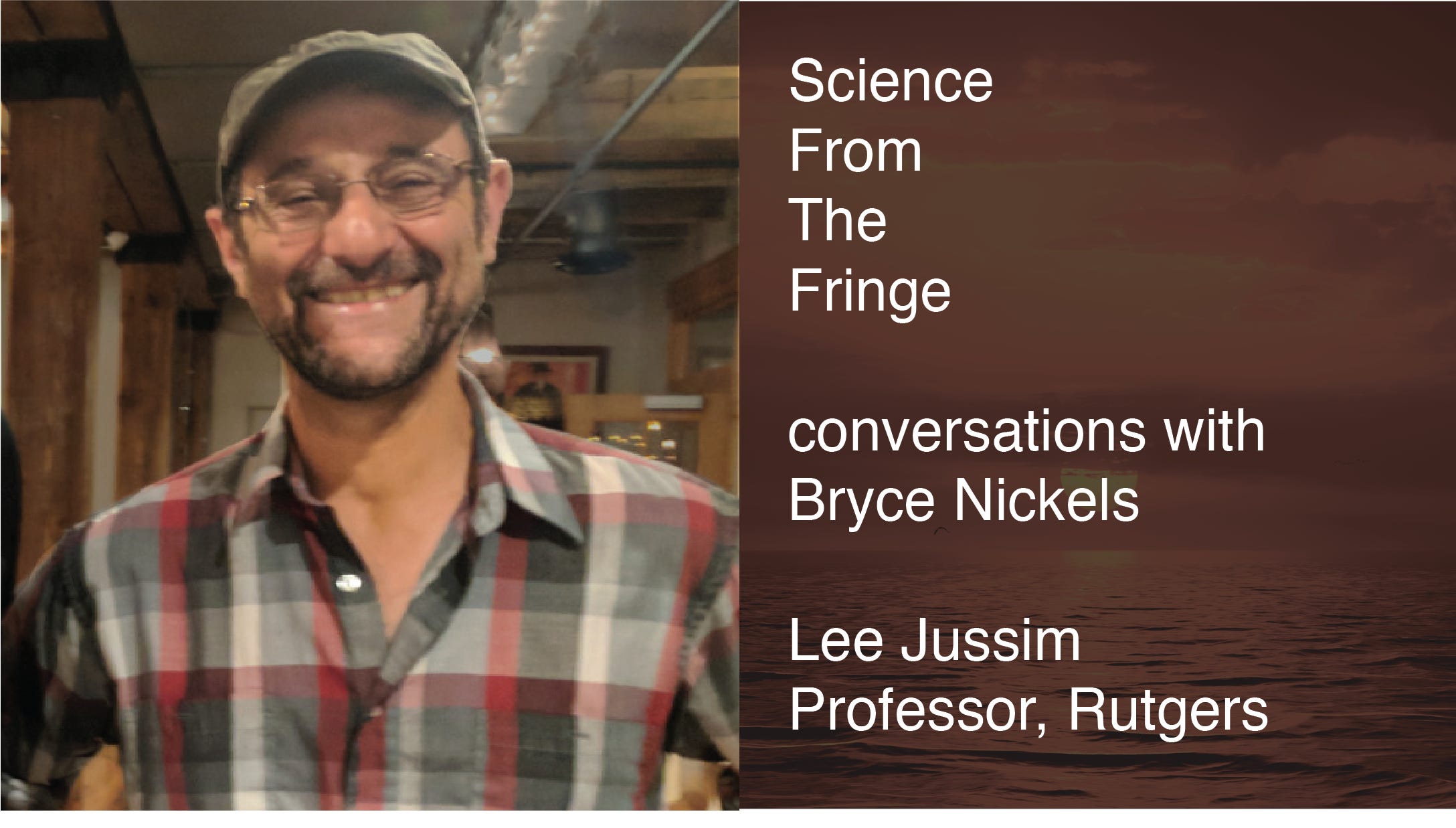 Science From The Fringe PodcastConversations with Bryce Nickels: Lee Jussim (Professor of Psychology, Rutgers)Bryce Nickels interviews Lee Jussim, a Distinguished Professor of Psychology at Rutgers University, about cancel culture in academia, the pressure to conform to political views, and the negative effects of diversity, equity, and inclusion (DEI) initiatives. They discuss Lee's research measuring political extremism in academia as well as his recent analysis of the impact of DEI rhetoric on perceptions of racism. Bryce and Lee also discuss the challenges posed by the lack of political diversity in academic settings.features music by Tess Parks Get full access to Science From The Fringe at...2024-12-221h 16
Science From The Fringe PodcastConversations with Bryce Nickels: Lee Jussim (Professor of Psychology, Rutgers)Bryce Nickels interviews Lee Jussim, a Distinguished Professor of Psychology at Rutgers University, about cancel culture in academia, the pressure to conform to political views, and the negative effects of diversity, equity, and inclusion (DEI) initiatives. They discuss Lee's research measuring political extremism in academia as well as his recent analysis of the impact of DEI rhetoric on perceptions of racism. Bryce and Lee also discuss the challenges posed by the lack of political diversity in academic settings.features music by Tess Parks Get full access to Science From The Fringe at...2024-12-221h 16 The Jordan B. Peterson Podcast507. The Insanity of Woke Psychologists | Lee JussimDr. Jordan B. Peterson sits down with researcher and Rutgers University Professor of Psychology Lee Jessim. They discuss the denial of Left-wing authoritarianism across academia, how Lee’s research proved such authoritarianism exists, the backlash and attempted cancellations he received for his work, and how he not only survived the battle, but also garnered a promotion as a result. This episode was filmed on December 7th, 2024. | Links | For Lee Jussim: On X https://x.com/PsychRabble?ref_src=twsrc%5Egoogle%7Ctwcamp%5Eserp%7...2024-12-161h 43
The Jordan B. Peterson Podcast507. The Insanity of Woke Psychologists | Lee JussimDr. Jordan B. Peterson sits down with researcher and Rutgers University Professor of Psychology Lee Jessim. They discuss the denial of Left-wing authoritarianism across academia, how Lee’s research proved such authoritarianism exists, the backlash and attempted cancellations he received for his work, and how he not only survived the battle, but also garnered a promotion as a result. This episode was filmed on December 7th, 2024. | Links | For Lee Jussim: On X https://x.com/PsychRabble?ref_src=twsrc%5Egoogle%7Ctwcamp%5Eserp%7...2024-12-161h 43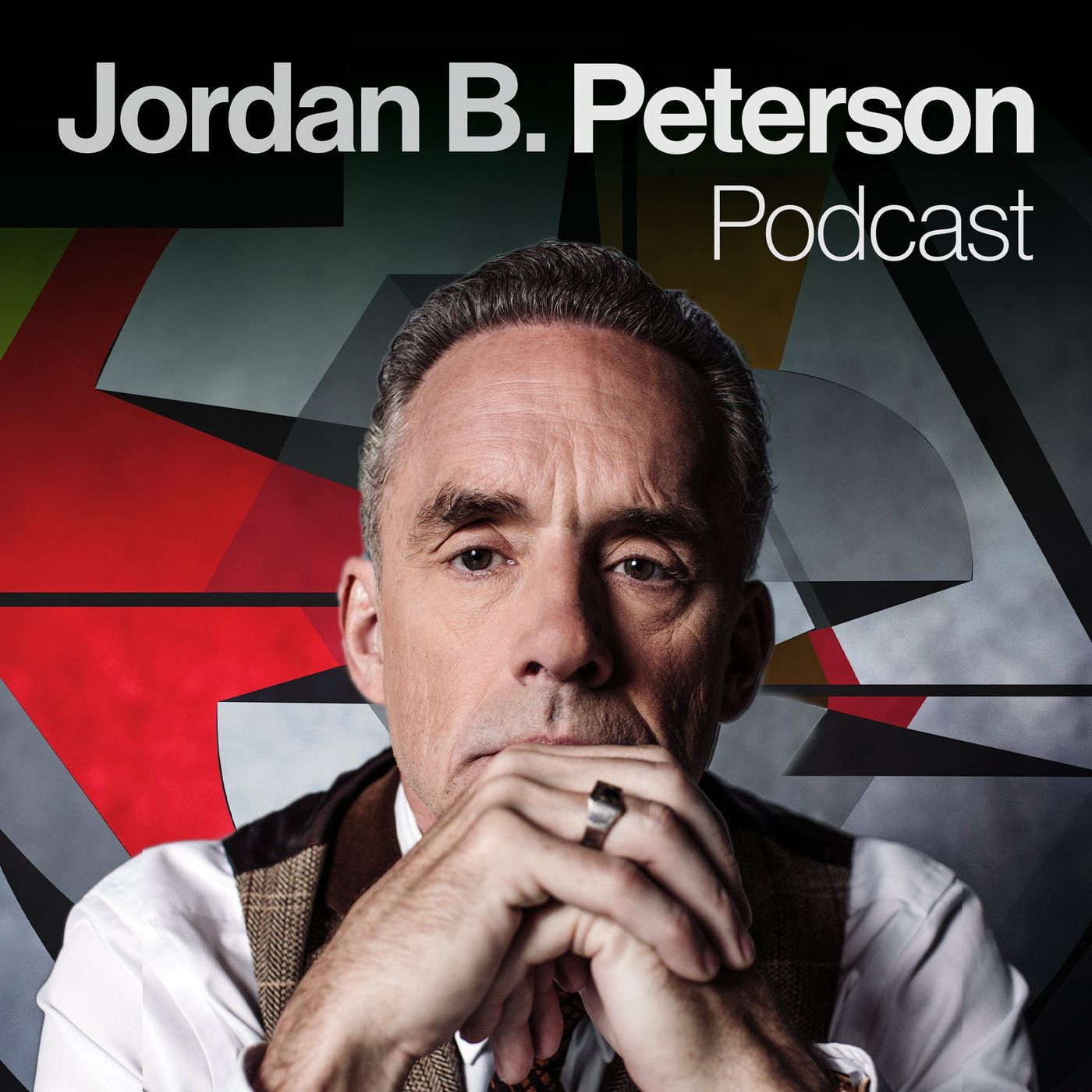 The Jordan B. Peterson Podcast507. The Insanity of Woke Psychologists | Lee JussimDr. Jordan B. Peterson sits down with researcher and Rutgers University Professor of Psychology Lee Jessim. They discuss the denial of Left-wing authoritarianism across academia, how Lee’s research proved such authoritarianism exists, the backlash and attempted cancellations he received for his work, and how he not only survived the battle, but also garnered a promotion as a result. This episode was filmed on December 7th, 2024. | Links | For Lee Jussim: On X https://x.com/PsychRabble?ref_src=twsrc%5Egoogle%7Ctwcamp%5Eserp%7Ctwgr%5Eauthor2024-12-161h 41
The Jordan B. Peterson Podcast507. The Insanity of Woke Psychologists | Lee JussimDr. Jordan B. Peterson sits down with researcher and Rutgers University Professor of Psychology Lee Jessim. They discuss the denial of Left-wing authoritarianism across academia, how Lee’s research proved such authoritarianism exists, the backlash and attempted cancellations he received for his work, and how he not only survived the battle, but also garnered a promotion as a result. This episode was filmed on December 7th, 2024. | Links | For Lee Jussim: On X https://x.com/PsychRabble?ref_src=twsrc%5Egoogle%7Ctwcamp%5Eserp%7Ctwgr%5Eauthor2024-12-161h 41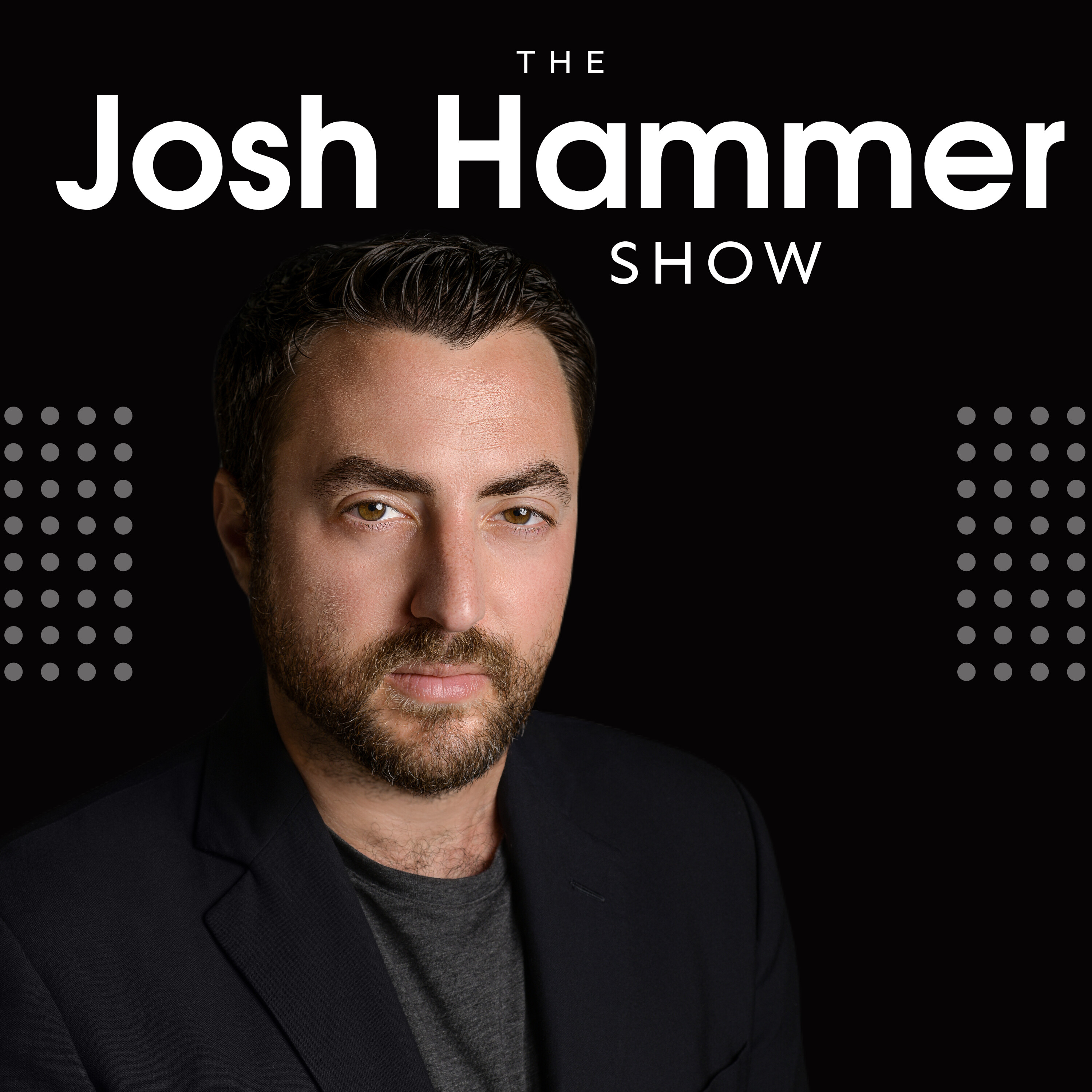 The Josh Hammer ShowYes, DEI Increases Prejudice and Hostility (Feat. Lee Jussim)Josh is joined by Dr. Lee Jussim, a Rutgers University social psychologist, to discuss a new academic white paper from Rutgers' Social Perception Lab, "Instructing Animosity: How DEI Pedagogy Produces the Hostile Attribution Bias."See Privacy Policy at https://art19.com/privacy and California Privacy Notice at https://art19.com/privacy#do-not-sell-my-info.2024-12-1327 min
The Josh Hammer ShowYes, DEI Increases Prejudice and Hostility (Feat. Lee Jussim)Josh is joined by Dr. Lee Jussim, a Rutgers University social psychologist, to discuss a new academic white paper from Rutgers' Social Perception Lab, "Instructing Animosity: How DEI Pedagogy Produces the Hostile Attribution Bias."See Privacy Policy at https://art19.com/privacy and California Privacy Notice at https://art19.com/privacy#do-not-sell-my-info.2024-12-1327 min The Free Mind PodcastS10 E3: Lee Jussim: Surviving cancel culture while keeping your headLee Jussim is Distinguished Professor of Psychology at Rutgers University, and a founding member of both the Academic Freedom Alliance and the Society for Open Inquiry in the Behavioral Sciences. In addition to being a renowned psychology researcher, Dr. Jussim is also an outspoken critic of cancel culture and the politicization of his discipline of social psychology, and of academia writ large. For his efforts, he has been the target of cancelation attempts. We discuss his upbringing, his research on stereotypes and other controversial topics, his brushes with cancel culture, the risks of becoming reactionary when facing cancelation attempts...2024-11-121h 39
The Free Mind PodcastS10 E3: Lee Jussim: Surviving cancel culture while keeping your headLee Jussim is Distinguished Professor of Psychology at Rutgers University, and a founding member of both the Academic Freedom Alliance and the Society for Open Inquiry in the Behavioral Sciences. In addition to being a renowned psychology researcher, Dr. Jussim is also an outspoken critic of cancel culture and the politicization of his discipline of social psychology, and of academia writ large. For his efforts, he has been the target of cancelation attempts. We discuss his upbringing, his research on stereotypes and other controversial topics, his brushes with cancel culture, the risks of becoming reactionary when facing cancelation attempts...2024-11-121h 39 Répare Ta ScienceMéfiez-vous des articles alléchants RTS#6Aujourd'hui, Adrien invite Brice Beffara, chercheur en psychologie a l'université de Nantes, pour parler d'un article listant tous les moyens utilisés par les chercheurs pour rendre leurs articles plus attrayant et persuasifs.
Le lien de l'article :
Olivier Corneille, Jo Havemann, Emma L Henderson, Hans IJzerman, Ian Hussey, Jean-Jacques Orban de Xivry, Lee Jussim, Nicholas P Holmes, Artur Pilacinski, Brice Beffara, Harriet Carroll, Nicholas Otieno Outa, Peter Lush, Leon D Lotter (2023) Point of View: Beware ‘persuasive communication devices’ when writing and reading scientific articles eLife 12:e88654
...2024-10-281h 34
Répare Ta ScienceMéfiez-vous des articles alléchants RTS#6Aujourd'hui, Adrien invite Brice Beffara, chercheur en psychologie a l'université de Nantes, pour parler d'un article listant tous les moyens utilisés par les chercheurs pour rendre leurs articles plus attrayant et persuasifs.
Le lien de l'article :
Olivier Corneille, Jo Havemann, Emma L Henderson, Hans IJzerman, Ian Hussey, Jean-Jacques Orban de Xivry, Lee Jussim, Nicholas P Holmes, Artur Pilacinski, Brice Beffara, Harriet Carroll, Nicholas Otieno Outa, Peter Lush, Leon D Lotter (2023) Point of View: Beware ‘persuasive communication devices’ when writing and reading scientific articles eLife 12:e88654
...2024-10-281h 34 Clearer Thinking with Spencer GreenbergAcademic group think, free speech norms, and the psychology of time (with Anne Wilson)Read the full transcript here. How does psychological time differ from clock time? How does a person's perception of time relate to their personal identity? How does a person's view of their past shape how they view their future? To what extent do people differ in the degree to which they feel like a single, continuous person across time? What effects does a person's perception of time have on their assessment of injustices? Why aren't there more adversarial collaborations in academia? Is academia generally politically left-leaning? How does lack of political diversity in academia compare to (e...2024-02-221h 39
Clearer Thinking with Spencer GreenbergAcademic group think, free speech norms, and the psychology of time (with Anne Wilson)Read the full transcript here. How does psychological time differ from clock time? How does a person's perception of time relate to their personal identity? How does a person's view of their past shape how they view their future? To what extent do people differ in the degree to which they feel like a single, continuous person across time? What effects does a person's perception of time have on their assessment of injustices? Why aren't there more adversarial collaborations in academia? Is academia generally politically left-leaning? How does lack of political diversity in academia compare to (e...2024-02-221h 39 The DissidentsS4 E2 | The Tide is High: Little Evidence of Ebbing DEI ImpactsRecent editorial headlines and social media posts suggest the resignation of Harvard's president, combined with shifting public sentiment, are signals that DEI initiatives are losing their grip on education and government. In this week's episode, Mike and Elizabeth discuss why a few small cracks in the DEI facade are unlikely to turn the tide. We are very skeptical that the overall strength and vastness of DEI influences have been diminished and see more evidence of continued vulnerability to a belief system that is baked into the consciousness of so many. Policies, procedures, and commitments have been made that will...2024-01-191h 24
The DissidentsS4 E2 | The Tide is High: Little Evidence of Ebbing DEI ImpactsRecent editorial headlines and social media posts suggest the resignation of Harvard's president, combined with shifting public sentiment, are signals that DEI initiatives are losing their grip on education and government. In this week's episode, Mike and Elizabeth discuss why a few small cracks in the DEI facade are unlikely to turn the tide. We are very skeptical that the overall strength and vastness of DEI influences have been diminished and see more evidence of continued vulnerability to a belief system that is baked into the consciousness of so many. Policies, procedures, and commitments have been made that will...2024-01-191h 24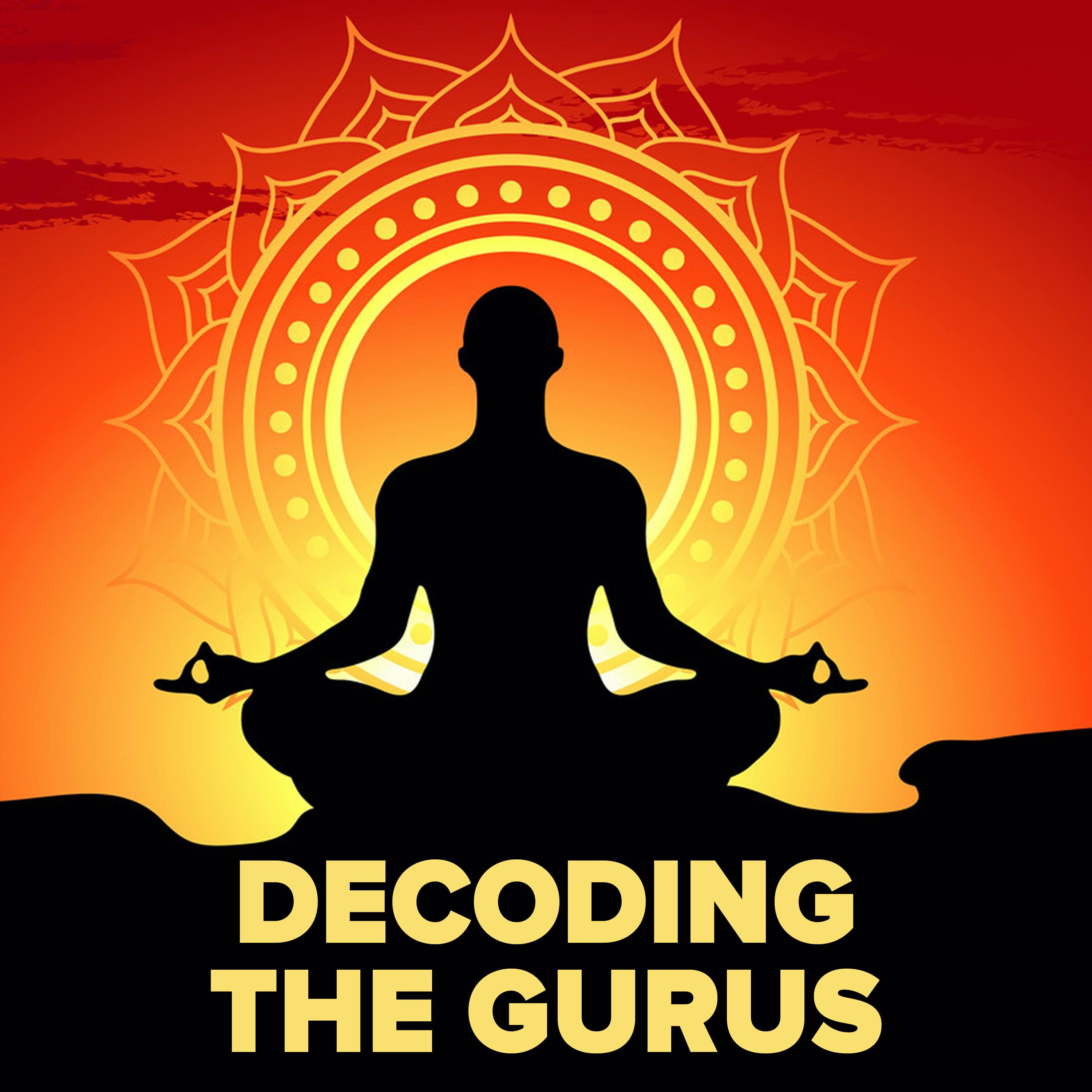 Decoding the GurusInterview with Daniël Lakens and Smriti Mehta on the state of PsychologyWe are back with more geeky academic discussion than you can shake a stick at. This week we are doing our bit to save civilization by discussing issues in contemporary science, the replication crisis, and open science reforms with fellow psychologists/meta-scientists/podcasters, Daniël Lakens and Smriti Mehta. Both Daniël and Smriti are well known for their advocacy for methodological reform and have been hosting a (relatively) new podcast, Nullius in Verba, all about 'science—what it is and what it could be'. We discuss a range of topics including questionable research practices, the implications of t...2023-11-182h 42
Decoding the GurusInterview with Daniël Lakens and Smriti Mehta on the state of PsychologyWe are back with more geeky academic discussion than you can shake a stick at. This week we are doing our bit to save civilization by discussing issues in contemporary science, the replication crisis, and open science reforms with fellow psychologists/meta-scientists/podcasters, Daniël Lakens and Smriti Mehta. Both Daniël and Smriti are well known for their advocacy for methodological reform and have been hosting a (relatively) new podcast, Nullius in Verba, all about 'science—what it is and what it could be'. We discuss a range of topics including questionable research practices, the implications of t...2023-11-182h 42 The DissidentsEp. 025: The Struggle Within: Campus Culture, Free Inquiry, and the New Princeton Principles | Lee JussimIn this week's podcast Elizabeth and Mike talk with Lee Jussim about the new "Princeton Principles for a Campus Culture of Free Inquiry." Lee, distinguished professor of psychology at Rutgers, joined an interdisciplinary group of professors from many institutions in creating a set of principles that offer contemporary guidelines for the revitalization of higher education's core mission. The document addresses the special and honorable duties of universities to foster freedom of thought and to actively avoid becoming political or ideological battlegrounds. We alternate between frustration, worry, and hope in our discussion and examples of the challenges ahead for ensuring acc...2023-09-291h 07
The DissidentsEp. 025: The Struggle Within: Campus Culture, Free Inquiry, and the New Princeton Principles | Lee JussimIn this week's podcast Elizabeth and Mike talk with Lee Jussim about the new "Princeton Principles for a Campus Culture of Free Inquiry." Lee, distinguished professor of psychology at Rutgers, joined an interdisciplinary group of professors from many institutions in creating a set of principles that offer contemporary guidelines for the revitalization of higher education's core mission. The document addresses the special and honorable duties of universities to foster freedom of thought and to actively avoid becoming political or ideological battlegrounds. We alternate between frustration, worry, and hope in our discussion and examples of the challenges ahead for ensuring acc...2023-09-291h 07 Utterly Moderate PodcastThe Replication Crisis in Psychology (w/Lee Jussim)On this episode of the Utterly Moderate Podcast we are going to be talking about something called the “replication crisis.”
Most people will not be familiar with this since it has been happening in academia but we promise it is not only quite intriguing and full of juicy details but it also has some pretty big implications for the larger society.
So what is the replication crisis?
In the past 15 years or so it has been discovered that many research findings in major academic journals actually don’t hold up to scrutiny.
When...2023-09-1144 min
Utterly Moderate PodcastThe Replication Crisis in Psychology (w/Lee Jussim)On this episode of the Utterly Moderate Podcast we are going to be talking about something called the “replication crisis.”
Most people will not be familiar with this since it has been happening in academia but we promise it is not only quite intriguing and full of juicy details but it also has some pretty big implications for the larger society.
So what is the replication crisis?
In the past 15 years or so it has been discovered that many research findings in major academic journals actually don’t hold up to scrutiny.
When...2023-09-1144 min Utterly Moderate PodcastThe Questionable Science of Microaggressions (w/Lee Jussim)On this episode of the Utterly Moderate Podcast we are joined by Lee Jussim, Rutgers University distinguished professor of psychology. He is here to discuss the questionable science behind microaggressions.
If you are unfamiliar with the term, microaggressions are claimed to be “acts, often facially innocuous, that convey subtle animus or bias against someone in a traditionally marginalized group.”
Our guest, Dr. Jussim, has written multiple excellent articles detailing the problems with microaggression research. According to Jussim, research on microaggressions is mixed, unsettled, and “in its infancy, and is most definitely not ready for applications in the...2023-05-211h 10
Utterly Moderate PodcastThe Questionable Science of Microaggressions (w/Lee Jussim)On this episode of the Utterly Moderate Podcast we are joined by Lee Jussim, Rutgers University distinguished professor of psychology. He is here to discuss the questionable science behind microaggressions.
If you are unfamiliar with the term, microaggressions are claimed to be “acts, often facially innocuous, that convey subtle animus or bias against someone in a traditionally marginalized group.”
Our guest, Dr. Jussim, has written multiple excellent articles detailing the problems with microaggression research. According to Jussim, research on microaggressions is mixed, unsettled, and “in its infancy, and is most definitely not ready for applications in the...2023-05-211h 10 Science History PodcastIdeology & Science: Lee JussimAny intellectual endeavor runs the risk of bias. Today we explore ways in which political ideology interferes with scholarship, particularly in the social sciences, with a focus on social psychology. My guest is Lee Jussim, a distinguished professor of social psychology and the leader of the Social Perception Laboratory at Rutgers University. Lee is a prolific author and studies stereotypes, prejudice, and discrimination; political radicalization; and other problems that impede science and society. Lee's books include Social Perception and Social Reality, which received the American Association of Publishers award for best book in psychology, as well as the edited...2023-04-111h 30
Science History PodcastIdeology & Science: Lee JussimAny intellectual endeavor runs the risk of bias. Today we explore ways in which political ideology interferes with scholarship, particularly in the social sciences, with a focus on social psychology. My guest is Lee Jussim, a distinguished professor of social psychology and the leader of the Social Perception Laboratory at Rutgers University. Lee is a prolific author and studies stereotypes, prejudice, and discrimination; political radicalization; and other problems that impede science and society. Lee's books include Social Perception and Social Reality, which received the American Association of Publishers award for best book in psychology, as well as the edited...2023-04-111h 30 Science History PodcastEpisode 65. Ideology & Science: Lee JussimAny intellectual endeavor runs the risk of bias. Today we explore ways in which political ideology interferes with scholarship, particularly in the social sciences, with a focus on social psychology. My guest is Lee Jussim, a distinguished professor of social psychology and the leader of the Social Perception Laboratory at Rutgers University. Lee is a prolific author and studies stereotypes, prejudice, and discrimination; political radicalization; and other problems that impede science and society. Lee's books include Social Perception and Social Reality, which received the American Association of Publishers award for best book in psychology, as well as the edited volumes...2023-04-111h 30
Science History PodcastEpisode 65. Ideology & Science: Lee JussimAny intellectual endeavor runs the risk of bias. Today we explore ways in which political ideology interferes with scholarship, particularly in the social sciences, with a focus on social psychology. My guest is Lee Jussim, a distinguished professor of social psychology and the leader of the Social Perception Laboratory at Rutgers University. Lee is a prolific author and studies stereotypes, prejudice, and discrimination; political radicalization; and other problems that impede science and society. Lee's books include Social Perception and Social Reality, which received the American Association of Publishers award for best book in psychology, as well as the edited volumes...2023-04-111h 30 A Bit More ComplicatedEpisode 19 - The Mistreatment of Dr. Steven Roberts at PoPSIn this episode, we discuss the high profile case of Steven Robert's mistreatment at Perspective on Psychological Science (PoPS). We recorded an interesting and productive discussion with Steven, but he decided against publication of our conversation with him. We thought this topic was too important to not do an episode on, so we recorded our thoughts on the subject without Steven.
The episode includes: Steven's post-PoPS experiences (that he said we could share with the audience), our thoughts on the 2020 paper, our thoughts on his treatment at PoPS, and finally what we think about the academic critiques h...2023-02-261h 28
A Bit More ComplicatedEpisode 19 - The Mistreatment of Dr. Steven Roberts at PoPSIn this episode, we discuss the high profile case of Steven Robert's mistreatment at Perspective on Psychological Science (PoPS). We recorded an interesting and productive discussion with Steven, but he decided against publication of our conversation with him. We thought this topic was too important to not do an episode on, so we recorded our thoughts on the subject without Steven.
The episode includes: Steven's post-PoPS experiences (that he said we could share with the audience), our thoughts on the 2020 paper, our thoughts on his treatment at PoPS, and finally what we think about the academic critiques h...2023-02-261h 28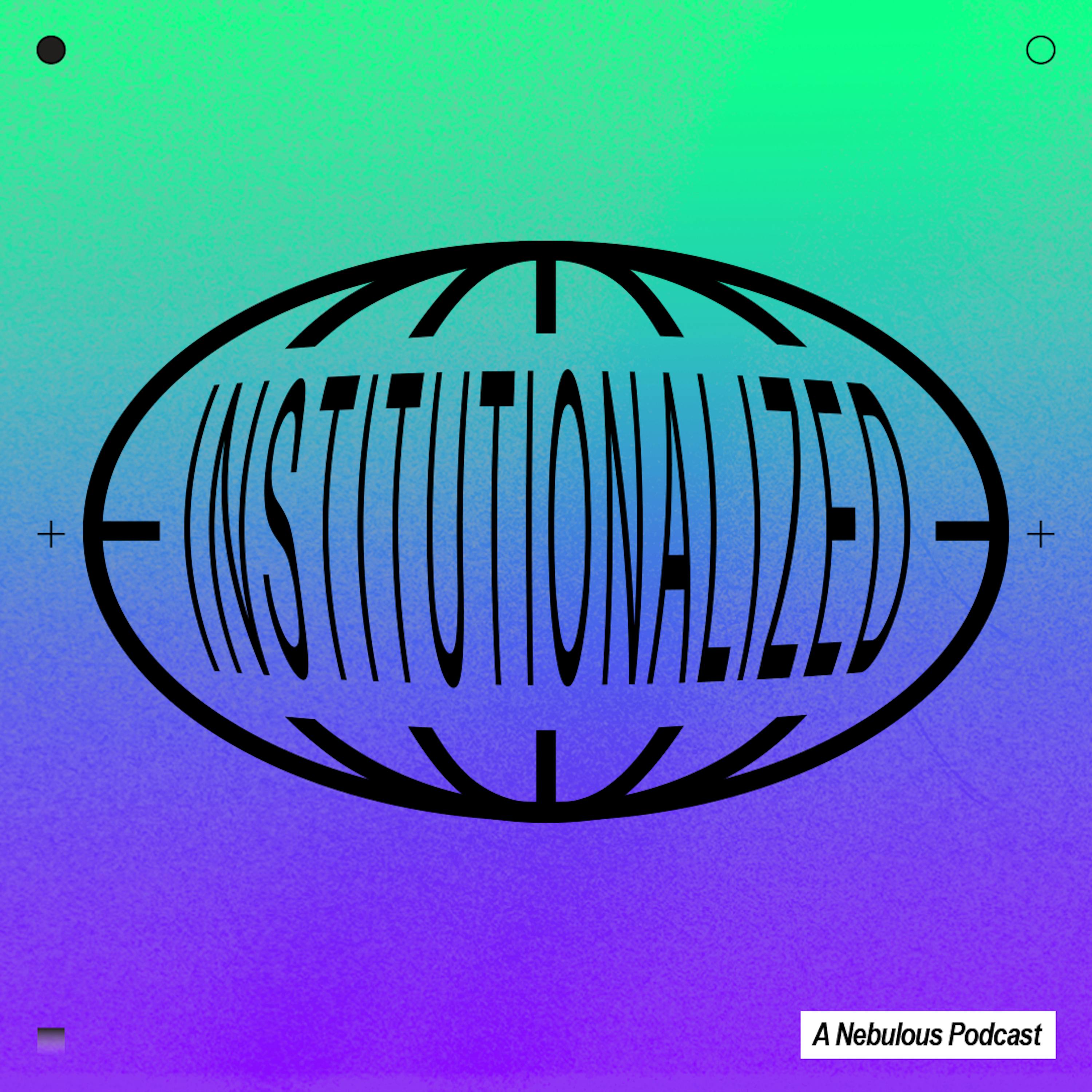 InstitutionalizedImplicit Bias with Lee JussimAaron and Charles sit down with Lee Jussim to discuss the implicit association test and the replication crisis.Recommendations:The Coronavirus and the Right’s Scientific Counterrevolution by Ari SchulmanScientific Regress by William WilsonUnsafe Science Substack by Lee Jussim2023-02-221h 06
InstitutionalizedImplicit Bias with Lee JussimAaron and Charles sit down with Lee Jussim to discuss the implicit association test and the replication crisis.Recommendations:The Coronavirus and the Right’s Scientific Counterrevolution by Ari SchulmanScientific Regress by William WilsonUnsafe Science Substack by Lee Jussim2023-02-221h 06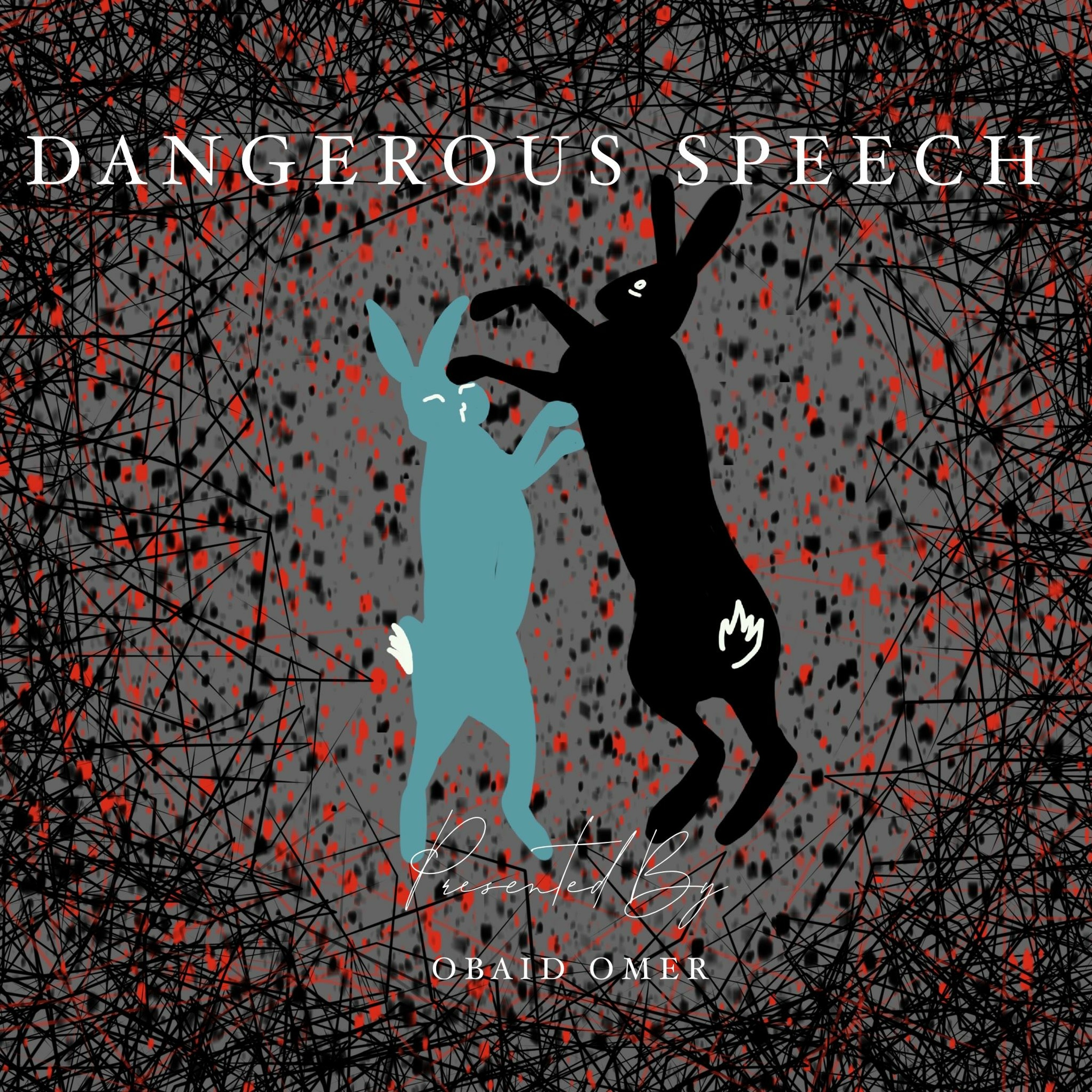 Dangerous SpeechEp 146 Lee Jussim Pt 3I spoke with Lee Jussim about his recent attempted cancellation, the state of psychology, academia and their future, and the loss of trust in institutions.
Follow me: @obaidomer
FollowLee: @PsychRabble
You can find Lee's substack here: http://unsafescience.substack.com2023-01-281h 09
Dangerous SpeechEp 146 Lee Jussim Pt 3I spoke with Lee Jussim about his recent attempted cancellation, the state of psychology, academia and their future, and the loss of trust in institutions.
Follow me: @obaidomer
FollowLee: @PsychRabble
You can find Lee's substack here: http://unsafescience.substack.com2023-01-281h 09 A Bit More ComplicatedEpisode 13 - How Inequality Gets Under the Skin with Dr. Keely Muscatell
In the beginning of the episode we discuss the Diversity, Equity, and Inclusion policy from the Society for Personality and Social Psychology (SPSP): https://spsp.org/events/demonstrating-our-commitment-anti-racism-through-programming-and-events
We reference a statement written by Jonathan Haidt and Lee Jussim complaining about this policy: https://unsafescience.substack.com/p/mandatory-diversity-equity-and-inclusion
Finally, we quickly discuss a recent paper in the Proceedings of the National Academy of Sciences (PNAS): https://www.pnas.org/doi/full/10.1073/pnas.2210412119
Dr. Muscatell's TED talk: https://www.youtube.com/watch?v=mpCvLXtMqiw&ab_channel=TEDxTalks
Social status and stress: https://static1.squarespace.com/static/57d17e77b8a79...2022-10-2052 min
A Bit More ComplicatedEpisode 13 - How Inequality Gets Under the Skin with Dr. Keely Muscatell
In the beginning of the episode we discuss the Diversity, Equity, and Inclusion policy from the Society for Personality and Social Psychology (SPSP): https://spsp.org/events/demonstrating-our-commitment-anti-racism-through-programming-and-events
We reference a statement written by Jonathan Haidt and Lee Jussim complaining about this policy: https://unsafescience.substack.com/p/mandatory-diversity-equity-and-inclusion
Finally, we quickly discuss a recent paper in the Proceedings of the National Academy of Sciences (PNAS): https://www.pnas.org/doi/full/10.1073/pnas.2210412119
Dr. Muscatell's TED talk: https://www.youtube.com/watch?v=mpCvLXtMqiw&ab_channel=TEDxTalks
Social status and stress: https://static1.squarespace.com/static/57d17e77b8a79...2022-10-2052 min The DissidentsEpisode 2: The Corrosive Effects of Political Bias | Lee JussimIn this week's podcast, we speak to Lee Jussim, a professor of psychology at Rutgers University who has recently started the Society of Open Inquiry in Behavioural Sciences. We discuss the nature of critical social justice, the corrosive effects of political bias, the lack of evidence for implicit bias in daily interactions, and the need to play the long game.
Society for Open Inquiry in Behavioral Science: https://www.soibs.com
Lee’s Substack: https://substack.com/profile/14401534-lee-jussim
A Model of Political Bias in Social Science Research: https://doi.org/10.1080/1047840X.2020.1722600
Read our...2022-08-121h 00
The DissidentsEpisode 2: The Corrosive Effects of Political Bias | Lee JussimIn this week's podcast, we speak to Lee Jussim, a professor of psychology at Rutgers University who has recently started the Society of Open Inquiry in Behavioural Sciences. We discuss the nature of critical social justice, the corrosive effects of political bias, the lack of evidence for implicit bias in daily interactions, and the need to play the long game.
Society for Open Inquiry in Behavioral Science: https://www.soibs.com
Lee’s Substack: https://substack.com/profile/14401534-lee-jussim
A Model of Political Bias in Social Science Research: https://doi.org/10.1080/1047840X.2020.1722600
Read our...2022-08-121h 00 Uncomfortable Conversations with Josh Szeps"Are Universities Too Woke?" with Lee JussimLee Jussim is an American social psychologist and distinguished professor leading the Social Perception Laboratory at Rutgers University. He joins Josh for this fifth instalment of Permission To Think, in collaboration with the University of Technology Sydney Faculty of Arts and Social Sciences. Hosted on Acast. See acast.com/privacy for more information.2022-03-3058 min
Uncomfortable Conversations with Josh Szeps"Are Universities Too Woke?" with Lee JussimLee Jussim is an American social psychologist and distinguished professor leading the Social Perception Laboratory at Rutgers University. He joins Josh for this fifth instalment of Permission To Think, in collaboration with the University of Technology Sydney Faculty of Arts and Social Sciences. Hosted on Acast. See acast.com/privacy for more information.2022-03-3058 min Heterodox Out LoudEp. 34: Part 1: Political Diversity Will Improve Social Psychological Science, Lee Jussim and Jonathan Haidt (Blog Audio-Only)On part 1 of this episode of Heterodox Out Loud, we’ll listen to Jonathan Haidt’s edited summary of a seminal academic paper that helped lead to the founding of Heterodox Academy. The original paper, “Political Diversity Will Improve Social Psychological Science,” was published in Behavioral and Brain Sciences in 2015, and was written by Jonathan Haidt, Lee Jussim, Jose Duarte, Jarret Crawford, Phil Tetlock, and Charlotta Stern. Make sure to listen to listen to part 2 where we speak with co-author Lee Jussim, Social Psychologist and Distinguished Professor at Rutgers Universit...2022-03-2529 min
Heterodox Out LoudEp. 34: Part 1: Political Diversity Will Improve Social Psychological Science, Lee Jussim and Jonathan Haidt (Blog Audio-Only)On part 1 of this episode of Heterodox Out Loud, we’ll listen to Jonathan Haidt’s edited summary of a seminal academic paper that helped lead to the founding of Heterodox Academy. The original paper, “Political Diversity Will Improve Social Psychological Science,” was published in Behavioral and Brain Sciences in 2015, and was written by Jonathan Haidt, Lee Jussim, Jose Duarte, Jarret Crawford, Phil Tetlock, and Charlotta Stern. Make sure to listen to listen to part 2 where we speak with co-author Lee Jussim, Social Psychologist and Distinguished Professor at Rutgers Universit...2022-03-2529 min Heterodox Out LoudEp. 34: Part 1: Political Diversity Will Improve Social Psychological Science, Lee Jussim and Jonathan Haidt (Blog Audio-Only)On part 1 of this episode of Heterodox Out Loud, we’ll listen to Jonathan Haidt’s edited summary of a seminal academic paper that helped lead to the founding of Heterodox Academy. The original paper, “Political Diversity Will Improve Social Psychological Science,” was published in Behavioral and Brain Sciences in 2015, and was written by Jonathan Haidt, Lee Jussim, Jose Duarte, Jarret Crawford, Phil Tetlock, and Charlotta Stern. Make sure to listen to listen to part 2 where we speak with co-author Lee Jussim, Social Psychologist and Distinguished Professor at Rutgers Universit...2022-03-2529 min
Heterodox Out LoudEp. 34: Part 1: Political Diversity Will Improve Social Psychological Science, Lee Jussim and Jonathan Haidt (Blog Audio-Only)On part 1 of this episode of Heterodox Out Loud, we’ll listen to Jonathan Haidt’s edited summary of a seminal academic paper that helped lead to the founding of Heterodox Academy. The original paper, “Political Diversity Will Improve Social Psychological Science,” was published in Behavioral and Brain Sciences in 2015, and was written by Jonathan Haidt, Lee Jussim, Jose Duarte, Jarret Crawford, Phil Tetlock, and Charlotta Stern. Make sure to listen to listen to part 2 where we speak with co-author Lee Jussim, Social Psychologist and Distinguished Professor at Rutgers Universit...2022-03-2529 min Heterodox Out LoudEp. 34: Part 2: Political Diversity Will Improve Social Psychological Science, Lee Jussim (Interview-Only)On part 2 of this episode of Heterodox Out Loud, we continue exploring how political bias in academia can solidify into orthodoxies that undermine truth-seeking and critical inquiry.We speak with co-author of Political Diversity Will Improve Social Psychological Science, Lee Jussim, Social Psychologist and Distinguished Professor at Rutgers University. Lee has published numerous articles and edited several books on social perception, accuracy, self-fulfilling prophecies, and stereotypes. For more from Lee, check out his Psychology Today blog called Rabble Rouser. Let us know what you th...2022-03-2422 min
Heterodox Out LoudEp. 34: Part 2: Political Diversity Will Improve Social Psychological Science, Lee Jussim (Interview-Only)On part 2 of this episode of Heterodox Out Loud, we continue exploring how political bias in academia can solidify into orthodoxies that undermine truth-seeking and critical inquiry.We speak with co-author of Political Diversity Will Improve Social Psychological Science, Lee Jussim, Social Psychologist and Distinguished Professor at Rutgers University. Lee has published numerous articles and edited several books on social perception, accuracy, self-fulfilling prophecies, and stereotypes. For more from Lee, check out his Psychology Today blog called Rabble Rouser. Let us know what you th...2022-03-2422 min Heterodox Out LoudEp. 34: Part 2: Political Diversity Will Improve Social Psychological Science, Lee Jussim (Interview-Only)On part 2 of this episode of Heterodox Out Loud, we continue exploring how political bias in academia can solidify into orthodoxies that undermine truth-seeking and critical inquiry.We speak with co-author of Political Diversity Will Improve Social Psychological Science, Lee Jussim, Social Psychologist and Distinguished Professor at Rutgers University. Lee has published numerous articles and edited several books on social perception, accuracy, self-fulfilling prophecies, and stereotypes. For more from Lee, check out his Psychology Today blog called Rabble Rouser. Let us know what you th...2022-03-2422 min
Heterodox Out LoudEp. 34: Part 2: Political Diversity Will Improve Social Psychological Science, Lee Jussim (Interview-Only)On part 2 of this episode of Heterodox Out Loud, we continue exploring how political bias in academia can solidify into orthodoxies that undermine truth-seeking and critical inquiry.We speak with co-author of Political Diversity Will Improve Social Psychological Science, Lee Jussim, Social Psychologist and Distinguished Professor at Rutgers University. Lee has published numerous articles and edited several books on social perception, accuracy, self-fulfilling prophecies, and stereotypes. For more from Lee, check out his Psychology Today blog called Rabble Rouser. Let us know what you th...2022-03-2422 min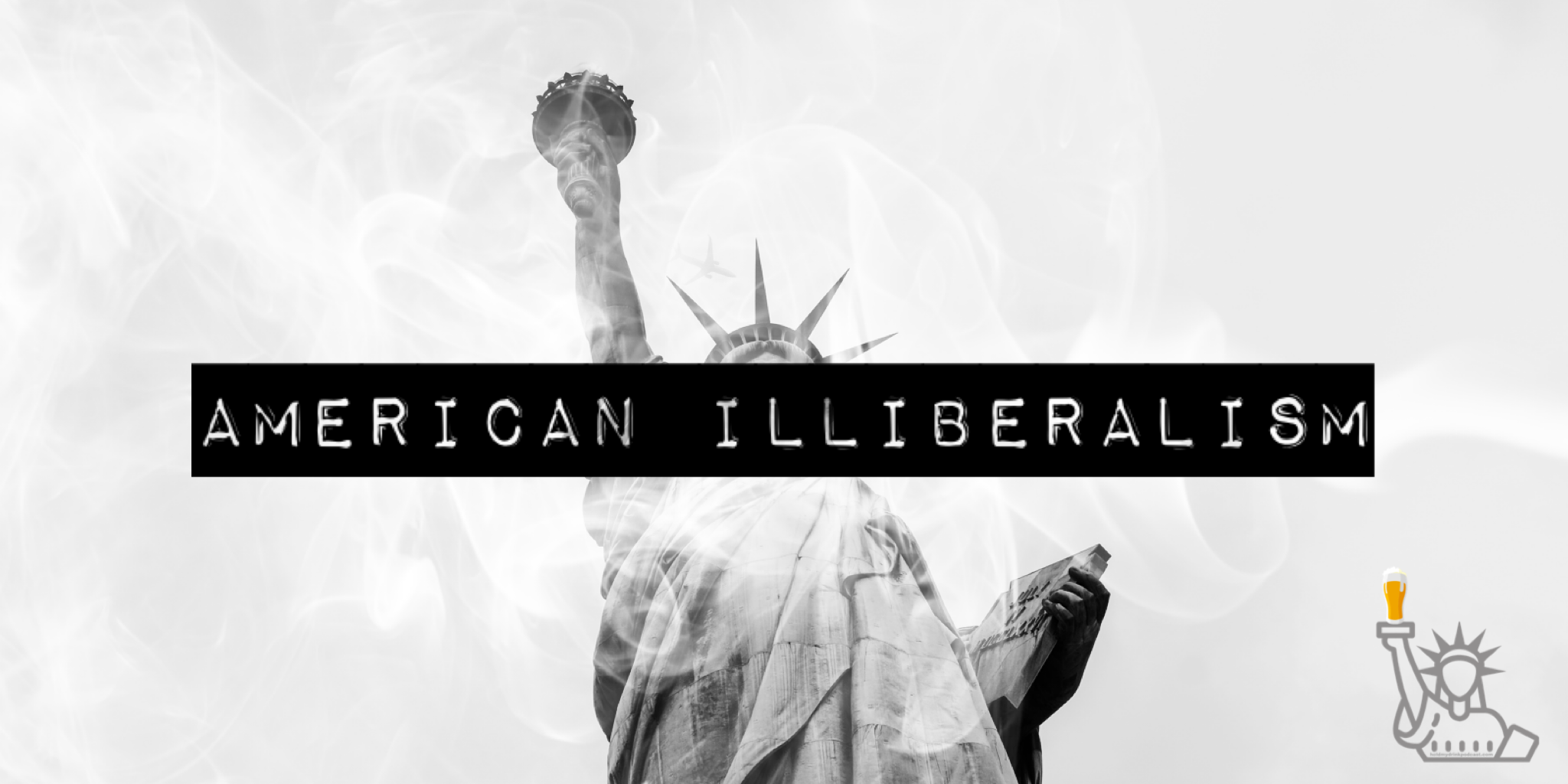 The Institute for Liberal ValuesEp. 67: American Illiberalism | Lee JussimWhy Americans Don't Feel Free to Speak Their MindsWe're in an epidemic of self-censorship.by Lee Jussim Ph.D. | Reprinted from Psychology Today with permissionSelf-censorship refers to a refusal to produce, distribute, circulate or express something out of fear of being punished for doing so. Self-censorship is different than tact or discretion. Fear of punishment is not involved. But if one shuts up out of fear of being harassed, bullied, shamed, or fired, this is indeed self-censorship.Recent DataRecent research from several sources shows “Americans are se...2022-02-0359 min
The Institute for Liberal ValuesEp. 67: American Illiberalism | Lee JussimWhy Americans Don't Feel Free to Speak Their MindsWe're in an epidemic of self-censorship.by Lee Jussim Ph.D. | Reprinted from Psychology Today with permissionSelf-censorship refers to a refusal to produce, distribute, circulate or express something out of fear of being punished for doing so. Self-censorship is different than tact or discretion. Fear of punishment is not involved. But if one shuts up out of fear of being harassed, bullied, shamed, or fired, this is indeed self-censorship.Recent DataRecent research from several sources shows “Americans are se...2022-02-0359 min The DissidentsEp. 67: American Illiberalism | Lee JussimIn the Hold my Drink — navigating culture with a chaser of civility, and Counterweight podcast, Episode 67, we speak with Lee Jussim, Chair and Distinguished Professor in the Psychology Department at Rutgers University. Lee shares his thoughts on a growing American illiberalism, the divide in American academia and his own experiences with cancellation. He explains how our polarization is not really ideological but rather affective, which creates new challenges in our discourse. All discussed with a chaser of civility, of course, an Arnold Palmer, Michelada and a scotch on the rocks.
To read more from Lee and to see wh...2022-02-0359 min
The DissidentsEp. 67: American Illiberalism | Lee JussimIn the Hold my Drink — navigating culture with a chaser of civility, and Counterweight podcast, Episode 67, we speak with Lee Jussim, Chair and Distinguished Professor in the Psychology Department at Rutgers University. Lee shares his thoughts on a growing American illiberalism, the divide in American academia and his own experiences with cancellation. He explains how our polarization is not really ideological but rather affective, which creates new challenges in our discourse. All discussed with a chaser of civility, of course, an Arnold Palmer, Michelada and a scotch on the rocks.
To read more from Lee and to see wh...2022-02-0359 min SpeechCastSpeechCast How Critical Social Justice Ideology Fuels Antisemitism - 26EPA panel discussion on the heels of JILV's White Paper release. The event focuses on the seven ways that Critical Social Justice Ideology ideology contributes to antisemitism and methods we suggest to counter its rise. Panelists include Blake Flayton, Dr. Pamela Paresky, Dr. Lee J. Jussim, and Daphna Kaufman; moderated by David Bernstein.2021-09-131h 02
SpeechCastSpeechCast How Critical Social Justice Ideology Fuels Antisemitism - 26EPA panel discussion on the heels of JILV's White Paper release. The event focuses on the seven ways that Critical Social Justice Ideology ideology contributes to antisemitism and methods we suggest to counter its rise. Panelists include Blake Flayton, Dr. Pamela Paresky, Dr. Lee J. Jussim, and Daphna Kaufman; moderated by David Bernstein.2021-09-131h 02 SpeechCastSpeechCast - Lee Jussim - To fight authoritarianism, it takes personal will - 17EPSocial psychologist, Lee Jussim, leads the Social Perception Laboratory at Rutgers University and is Chair of the Psychology Department. His scholarly work focuses on social perception, stereotypes, and how people judge others. Jussim argues that authoritarianism exists on both sides of the political spectrum and the locus of power is increasingly being held by the extremes. He believes that countering these powerful forces takes tremendous will on the part of moderates.2021-08-0541 min
SpeechCastSpeechCast - Lee Jussim - To fight authoritarianism, it takes personal will - 17EPSocial psychologist, Lee Jussim, leads the Social Perception Laboratory at Rutgers University and is Chair of the Psychology Department. His scholarly work focuses on social perception, stereotypes, and how people judge others. Jussim argues that authoritarianism exists on both sides of the political spectrum and the locus of power is increasingly being held by the extremes. He believes that countering these powerful forces takes tremendous will on the part of moderates.2021-08-0541 min More of a Comment Than a QuestionThe Bad-Lee Needed Contrarian (with Lee Jussim)I chat with Professor Lee Jussim of Rutgers University about ideological bias in science, academic freedom, social science as activism vs social science as truth seeking, and tennis.2021-06-131h 33
More of a Comment Than a QuestionThe Bad-Lee Needed Contrarian (with Lee Jussim)I chat with Professor Lee Jussim of Rutgers University about ideological bias in science, academic freedom, social science as activism vs social science as truth seeking, and tennis.2021-06-131h 33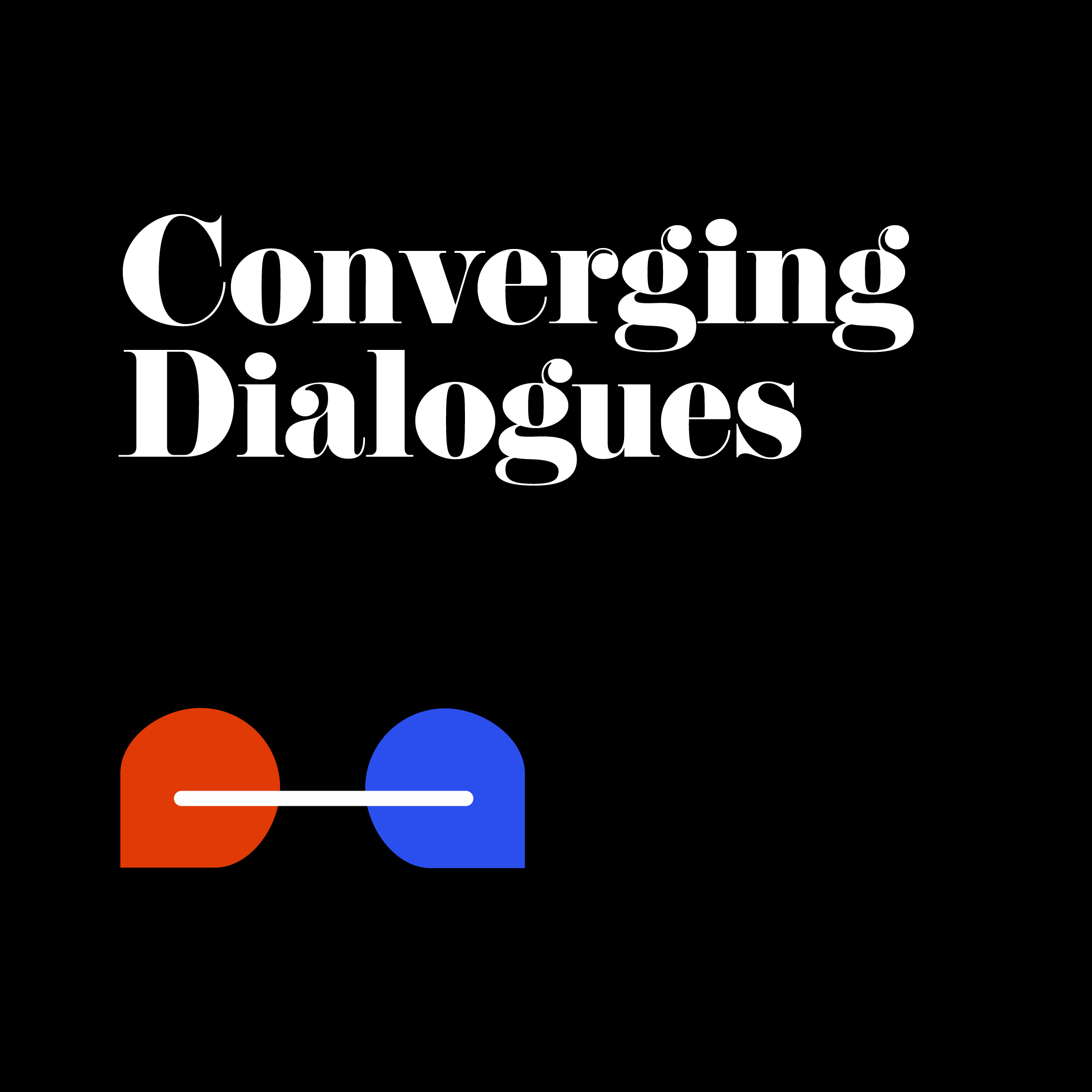 Converging Dialogues#31- Crisis! The Current State of the Social Sciences: A Dialogue with Lee JussimIn this episode, Xavier Bonilla has a dialogue with Lee Jussim about stereotypes, bias, and the current state of the social sciences. They talk about the scientific data on stereotypes, good and bad stereotypes, and how one understands stereotypes. They discuss some of the history of studies in social psychology and how that has changed currently. They discuss social perception and bias and give a detail description on how there is no general or universal definition of implicit bias. They talk about the Implicit Association Test (IAT) and some of the implications of this test. They also discuss some...2021-03-182h 26
Converging Dialogues#31- Crisis! The Current State of the Social Sciences: A Dialogue with Lee JussimIn this episode, Xavier Bonilla has a dialogue with Lee Jussim about stereotypes, bias, and the current state of the social sciences. They talk about the scientific data on stereotypes, good and bad stereotypes, and how one understands stereotypes. They discuss some of the history of studies in social psychology and how that has changed currently. They discuss social perception and bias and give a detail description on how there is no general or universal definition of implicit bias. They talk about the Implicit Association Test (IAT) and some of the implications of this test. They also discuss some...2021-03-182h 26 Two Psychologists Four BeersActually Against Academia (with Lee Jussim)Lee Jussim joins the show to argue that we have been too soft on academia. We discuss problems in psychology and the social sciences including ideological bias, politically-motivated retractions, and more. Have things gotten better or worse over the past 10 years?
Plus: is Lee bad at Twitter?Special Guest: Lee Jussim.Links:6ix Days in Dade – Bellwoods BreweryAvion Anejo | Spirits ReviewBalt County BreweryWhite Picket Fence – Bellwoods BreweryRabble Rouser | Psychology TodayThe Princeton Faculty's Anti-Free-Speech Demands - The AtlanticA Model of Political Bias in Social Science ResearchMicroaggressions, Questionable Science, And Free Speech2021-02-241h 20
Two Psychologists Four BeersActually Against Academia (with Lee Jussim)Lee Jussim joins the show to argue that we have been too soft on academia. We discuss problems in psychology and the social sciences including ideological bias, politically-motivated retractions, and more. Have things gotten better or worse over the past 10 years?
Plus: is Lee bad at Twitter?Special Guest: Lee Jussim.Links:6ix Days in Dade – Bellwoods BreweryAvion Anejo | Spirits ReviewBalt County BreweryWhite Picket Fence – Bellwoods BreweryRabble Rouser | Psychology TodayThe Princeton Faculty's Anti-Free-Speech Demands - The AtlanticA Model of Political Bias in Social Science ResearchMicroaggressions, Questionable Science, And Free Speech2021-02-241h 20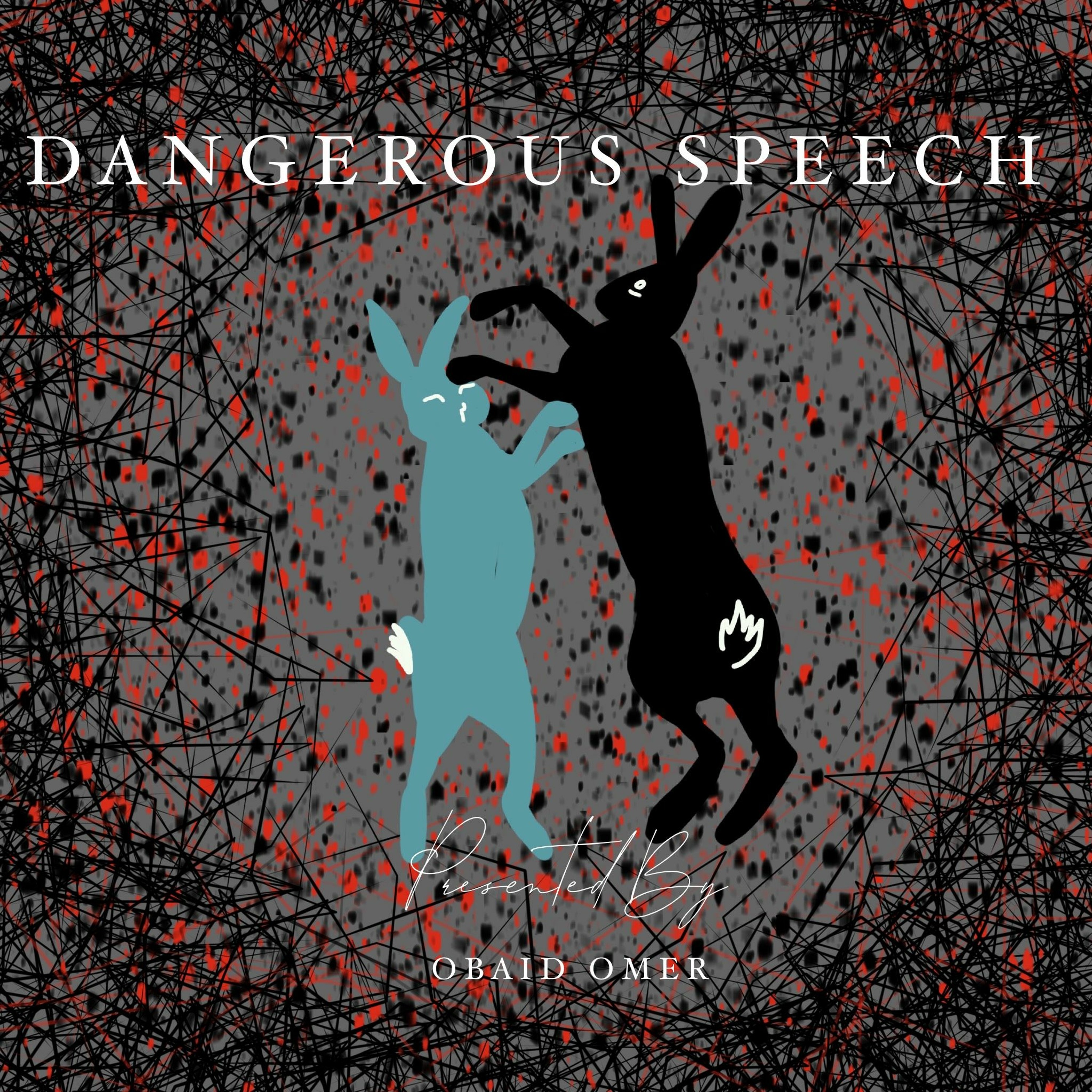 Dangerous SpeechEp 77: Lee Jussim Pt 2I spoke with Lee Jussim about research he is working on about radicalization & extremism. We also discussed conspiratorial thinking and the US election
Follow me: @obaidomer
Follow Lee: @PsychRabble
Check out the research on extremism which Lee is collaborating on https://ncri.io/reports
Check out Lee’s blog in Psychology Today: https://www.psychologytoday.com/us/blog/rabble-rouser2020-11-041h 12
Dangerous SpeechEp 77: Lee Jussim Pt 2I spoke with Lee Jussim about research he is working on about radicalization & extremism. We also discussed conspiratorial thinking and the US election
Follow me: @obaidomer
Follow Lee: @PsychRabble
Check out the research on extremism which Lee is collaborating on https://ncri.io/reports
Check out Lee’s blog in Psychology Today: https://www.psychologytoday.com/us/blog/rabble-rouser2020-11-041h 12 Dangerous SpeechEP 60: Lee JussimI spoke with Lee Jussim about methodologies in science, issues around measurement and replication in soft sciences, publishing in journals, and the current state of discourse.
At 30:28 Lee is discussing a diagram demonstrating a problem with publishing it can be found here: https://www.psychologytoday.com/us/blog/rabble-rouser/202001/how-create-scientific-myths-without-really-trying
Follow me: @obaidomer
Follow Lee: @PsychRabble
Check out Lee’s Rabble Rouser blog on Psychology Today: https://www.psychologytoday.com/us/blog/rabble-rouser2020-05-241h 08
Dangerous SpeechEP 60: Lee JussimI spoke with Lee Jussim about methodologies in science, issues around measurement and replication in soft sciences, publishing in journals, and the current state of discourse.
At 30:28 Lee is discussing a diagram demonstrating a problem with publishing it can be found here: https://www.psychologytoday.com/us/blog/rabble-rouser/202001/how-create-scientific-myths-without-really-trying
Follow me: @obaidomer
Follow Lee: @PsychRabble
Check out Lee’s Rabble Rouser blog on Psychology Today: https://www.psychologytoday.com/us/blog/rabble-rouser2020-05-241h 08 The Dan Proft Show PodcastFebruary 5, 2020City Journal's Charles McElwee on PA's bellwether valley. Harper's Thmas Chatterton Williams on coherence vs adherence. Pacific Legal Foundation attorney Ethan Blevins on the dilution property rights in Seattle (Oakland, NYC, et al.) I take apart Diane Ravitch's education reform vs. disruption arguments. Eliminating youth fitness in CA. The ruling class explains Romney, and the best glossary of terms I've read since Ambrose Bierce's "The Devil's Dictionary" from Rutgers' Lee JussimSee omnystudio.com/listener for privacy information.2020-02-061h 52
The Dan Proft Show PodcastFebruary 5, 2020City Journal's Charles McElwee on PA's bellwether valley. Harper's Thmas Chatterton Williams on coherence vs adherence. Pacific Legal Foundation attorney Ethan Blevins on the dilution property rights in Seattle (Oakland, NYC, et al.) I take apart Diane Ravitch's education reform vs. disruption arguments. Eliminating youth fitness in CA. The ruling class explains Romney, and the best glossary of terms I've read since Ambrose Bierce's "The Devil's Dictionary" from Rutgers' Lee JussimSee omnystudio.com/listener for privacy information.2020-02-061h 52 Free Food For ThoughtLee JussimIn a “post-truth” era, how can we make sure to rely on credible information grounded in empirical evidence? Dr. Lee Jussim sits down with Zach and Wes to discuss the dangers of relying on unsubstantiated claims -- for example, how do we know that stereotypes really are inaccurate? -- and his journey from public housing in Brooklyn to the forefront of social psychology research.2020-01-1129 min
Free Food For ThoughtLee JussimIn a “post-truth” era, how can we make sure to rely on credible information grounded in empirical evidence? Dr. Lee Jussim sits down with Zach and Wes to discuss the dangers of relying on unsubstantiated claims -- for example, how do we know that stereotypes really are inaccurate? -- and his journey from public housing in Brooklyn to the forefront of social psychology research.2020-01-1129 min Calmversations34 | Reforming the Social Sciences with Lee JussimLee Jussim (@PsychRabble) is a professor of Social Psychology at Rutgers University. He also identifies as a rabble rouser. His main focus in the social sciences is to get them consistently outputting high quality research. He is a firebrand and this conversation was fun as hell. Read his thoughts on psychology and the state of science at: https://www.psychologytoday.com/us/blog/rabble-rouser
Support this channel: https://www.paypal.me/benjaminboyce2019-03-071h 13
Calmversations34 | Reforming the Social Sciences with Lee JussimLee Jussim (@PsychRabble) is a professor of Social Psychology at Rutgers University. He also identifies as a rabble rouser. His main focus in the social sciences is to get them consistently outputting high quality research. He is a firebrand and this conversation was fun as hell. Read his thoughts on psychology and the state of science at: https://www.psychologytoday.com/us/blog/rabble-rouser
Support this channel: https://www.paypal.me/benjaminboyce2019-03-071h 13 Half Hour of HeterodoxyEpisode 41: Craig Frisby & Joshua D. Phillips, Cultural Competence TrainingMy guests on today’s episode are Craig Frisby and Joshua D. Phillips.
Craig Frisby is co-editor, with William O’Donohue, of a new book, Cultural Competence in Applied Psychology: An Evaluation of Current Status and Future Directions. The book takes a critical look at what professionals in the fields of clinical psychology, counseling psychology, school psychology refer to as cultural competence, also referred to as cultural sensitivity or multicultural competence. Josh Phillips is the author of a chapter in the book titled The Culture of Poverty: On Individual Choices and Infantilizing Bureaucracies.
Sean Stevens, our re...2018-12-1038 min
Half Hour of HeterodoxyEpisode 41: Craig Frisby & Joshua D. Phillips, Cultural Competence TrainingMy guests on today’s episode are Craig Frisby and Joshua D. Phillips.
Craig Frisby is co-editor, with William O’Donohue, of a new book, Cultural Competence in Applied Psychology: An Evaluation of Current Status and Future Directions. The book takes a critical look at what professionals in the fields of clinical psychology, counseling psychology, school psychology refer to as cultural competence, also referred to as cultural sensitivity or multicultural competence. Josh Phillips is the author of a chapter in the book titled The Culture of Poverty: On Individual Choices and Infantilizing Bureaucracies.
Sean Stevens, our re...2018-12-1038 min Half Hour of HeterodoxyEpisode 19: Frank Lechner, Symmetric Polarization or Republican Radicalism?Show Notes
Frank Lechner is a professor of sociology at Emory University. He did his undergraduate work in sociology at Tilburg University in the Netherlands, and then moved to the U.S. for his PhD. He’s the author of four books and two edited volumes—his most recent book is The American Exception, a book about American exceptionalism that covers several aspects of American life including religion, law, sports, and media. I invited him to the show in part to have a dialogue about a piece I published about asymmetric polarization. We also discussed a first-year semi...2018-02-0840 min
Half Hour of HeterodoxyEpisode 19: Frank Lechner, Symmetric Polarization or Republican Radicalism?Show Notes
Frank Lechner is a professor of sociology at Emory University. He did his undergraduate work in sociology at Tilburg University in the Netherlands, and then moved to the U.S. for his PhD. He’s the author of four books and two edited volumes—his most recent book is The American Exception, a book about American exceptionalism that covers several aspects of American life including religion, law, sports, and media. I invited him to the show in part to have a dialogue about a piece I published about asymmetric polarization. We also discussed a first-year semi...2018-02-0840 min Half Hour of HeterodoxyLee Jussim on Stereotype Accuracy and Biased Science: Half Hour of Heterodoxy #7In this episode, Chris Martin (@Chrismartin76) interviews Lee Jussim (@PsychRabble), Professor of Social Psychology at Rutgers, The State University of New Jersey. He conducts research on stereotypes and stereotype accuracy, and blogs at Rabble Rouser.
0:00 Lee’s work on the myth of stereotype inaccuracy
7:11 Blatant biases in conventional social research
10:26 What’s inside Lee’s upcoming books about politics & social psychology?
14:57 Is stereotype accuracy finally getting the coverage it needs?
23:20 People mostly discard stereotypes when they have individuating information
26:57 Stereotypes of liberals and conservatives—accuracy, inaccurac...2017-07-1135 min
Half Hour of HeterodoxyLee Jussim on Stereotype Accuracy and Biased Science: Half Hour of Heterodoxy #7In this episode, Chris Martin (@Chrismartin76) interviews Lee Jussim (@PsychRabble), Professor of Social Psychology at Rutgers, The State University of New Jersey. He conducts research on stereotypes and stereotype accuracy, and blogs at Rabble Rouser.
0:00 Lee’s work on the myth of stereotype inaccuracy
7:11 Blatant biases in conventional social research
10:26 What’s inside Lee’s upcoming books about politics & social psychology?
14:57 Is stereotype accuracy finally getting the coverage it needs?
23:20 People mostly discard stereotypes when they have individuating information
26:57 Stereotypes of liberals and conservatives—accuracy, inaccurac...2017-07-1135 min